The Deep Pockets Of Graceland Cemetery Walking Tour
History Of Graceland Cemetery
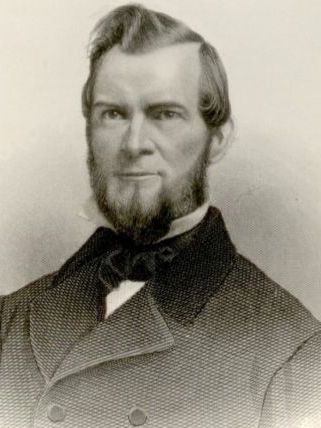
- Thomas Bryan graduated from Harvard in 1848 and spoke six languages.
- He was constantly in the news—building railroads, concert halls, and even founding Elmhurst.
- He ran for mayor more than once and moved in powerful political and social circles.
- Son of an abolitionist, he served as a pallbearer at Abraham Lincoln’s funeral.
- Introduced Ulysses S. Grant at the World’s Fair during his first public speech.
- Had an office in the groundbreaking Home Insurance Building
- Served as VP and Commissioner-at-Large for the 1893 Columbian Exposition.
- Traveled globally promoting the Fair—including a meeting with the Pope.
- Sold 51% of his copier company to H.H. Holmes, who never paid him.
- Became Holmes’ biggest swindling victims.
- Amid all this, he also founded Graceland Cemetery.
William LeBaron Jenney – Father Of Skyscrapers
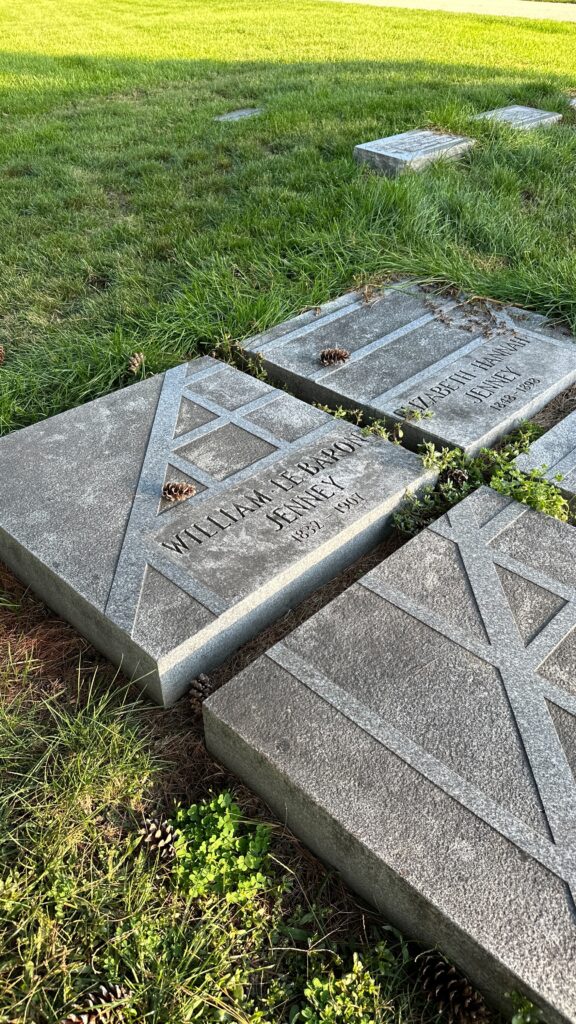

- Jenney invented steel-frame skyscraper design
- Designed the 13-story Home Insurance Building (1885) at Adams & LaSalle
- Considered the world’s first true skyscraper
- Mentored Burnham, Root, and Sullivan—also buried at Graceland
- As West Parks chief, designed Humboldt, Garfield & Douglas Parks
- Helped design the landscape of Graceland Cemetery
- Trained Burnham, Root & Sullivan
Dexter Graves – One Of The First Chicagoans
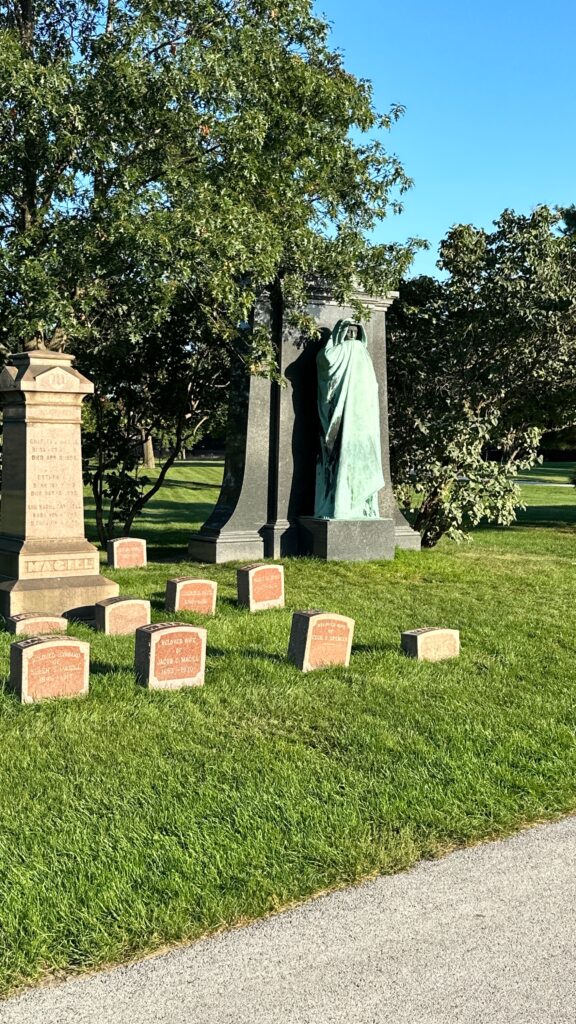
- One of the first 500 Chicagoans arriving in 1831
- Built the Mansion House in 1834
- Hosted Chicago’s first public performances
- Fire-eating, ventriloquism, magic
- Later named vaudeville
- Graves requested the most imposing monument money could buy
- “Eternal Silence” by sculptor Lorado Taft
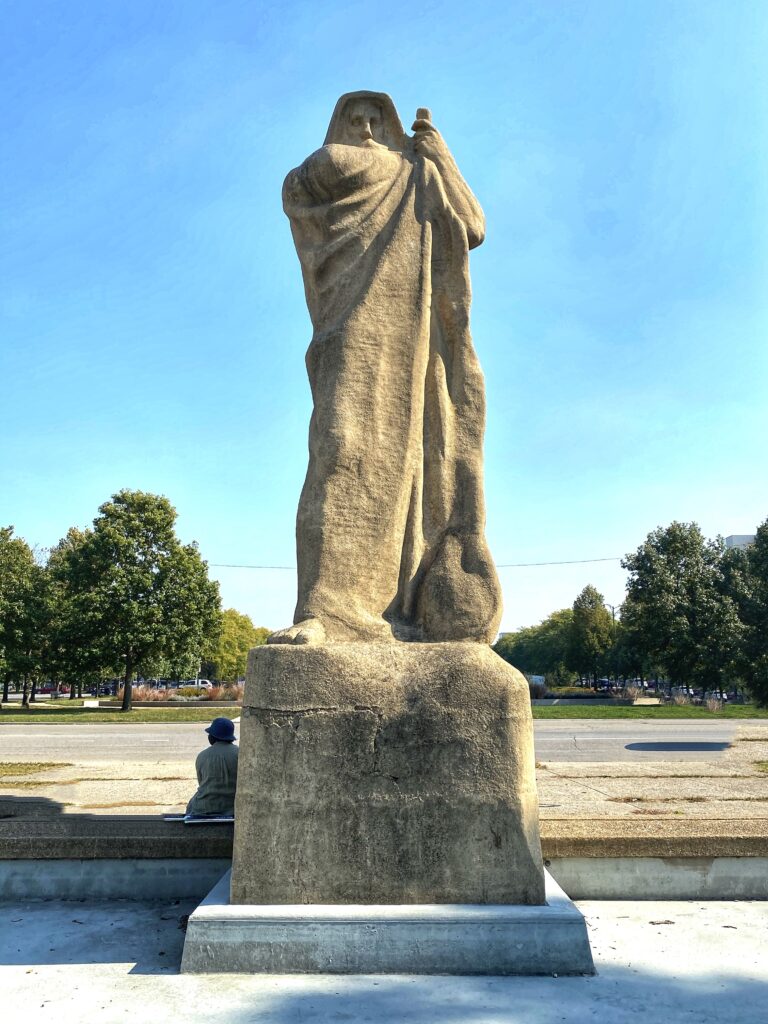
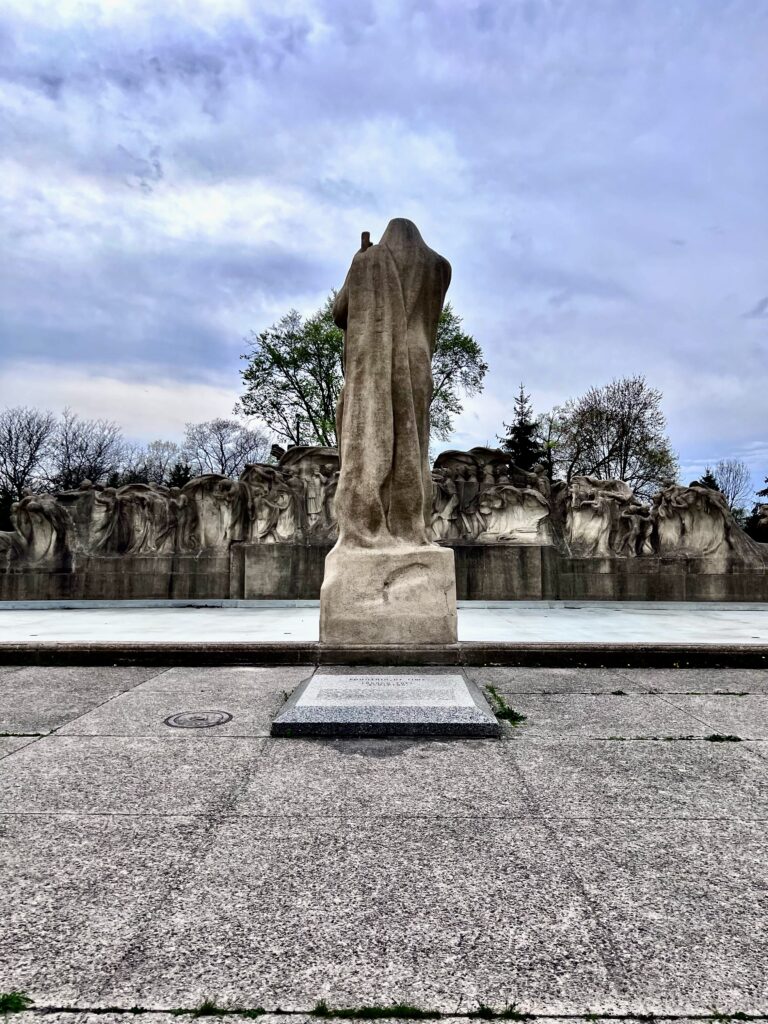

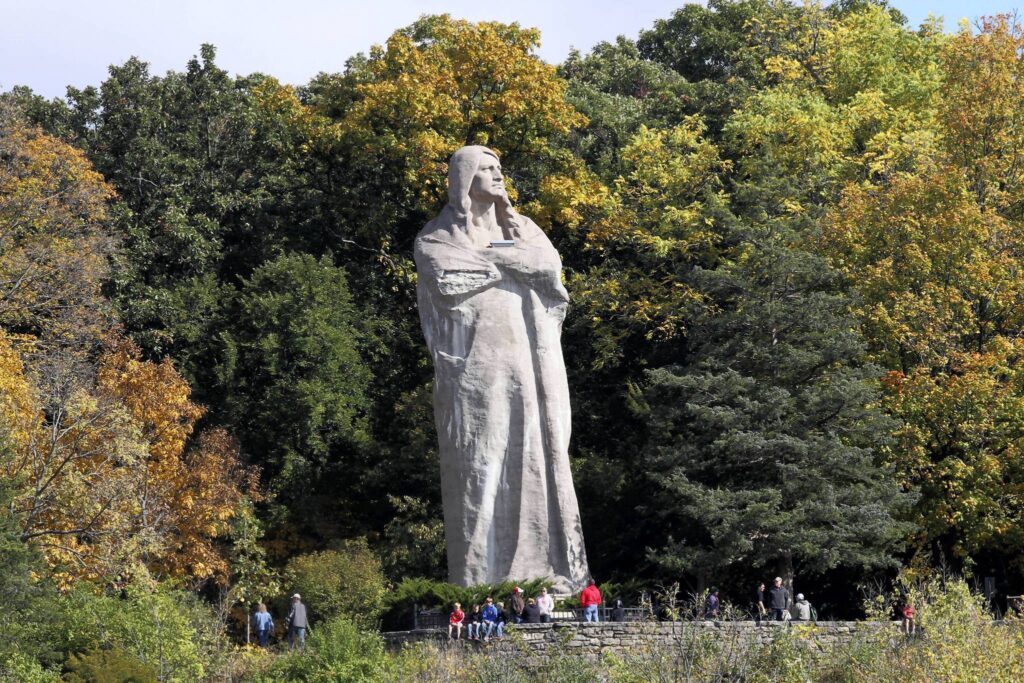
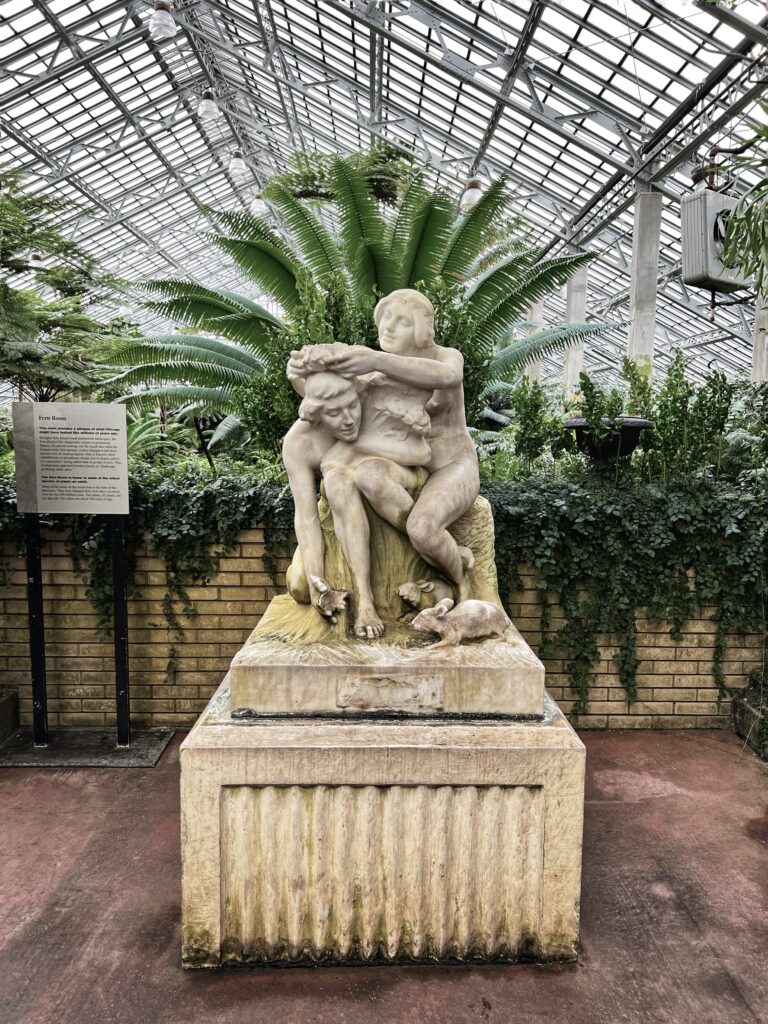
John Wellborn Root – Burnham & Root
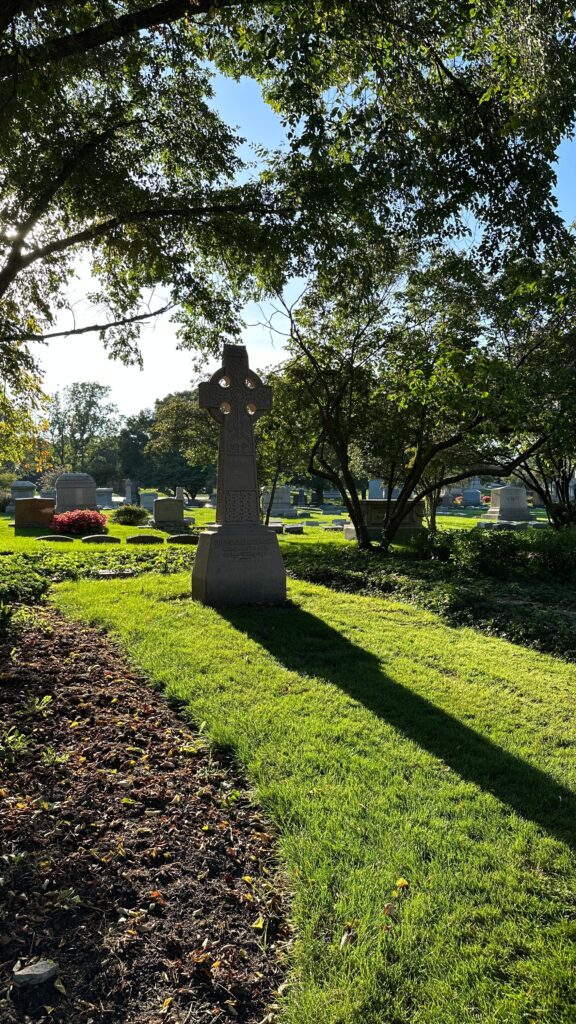
- John Root: key figure in the Chicago School of architecture
- In 1873, co-founded Burnham & Root with Daniel Burnham
- Designed The Rookery and north half of the Monadnock Building
- Monadnock is tallest load-bearing office building in the world (16 stories)
- Known for his love of art, pranks, and spending money
- His design talent helped establish Chicago’s architectural reputation
- Root’s wife Dora is buried here; her sister was poet Harriet Monroe
- Harriet founded Poetry Magazine, still active today
- The magazine was published from the Fine Arts Building penthouse
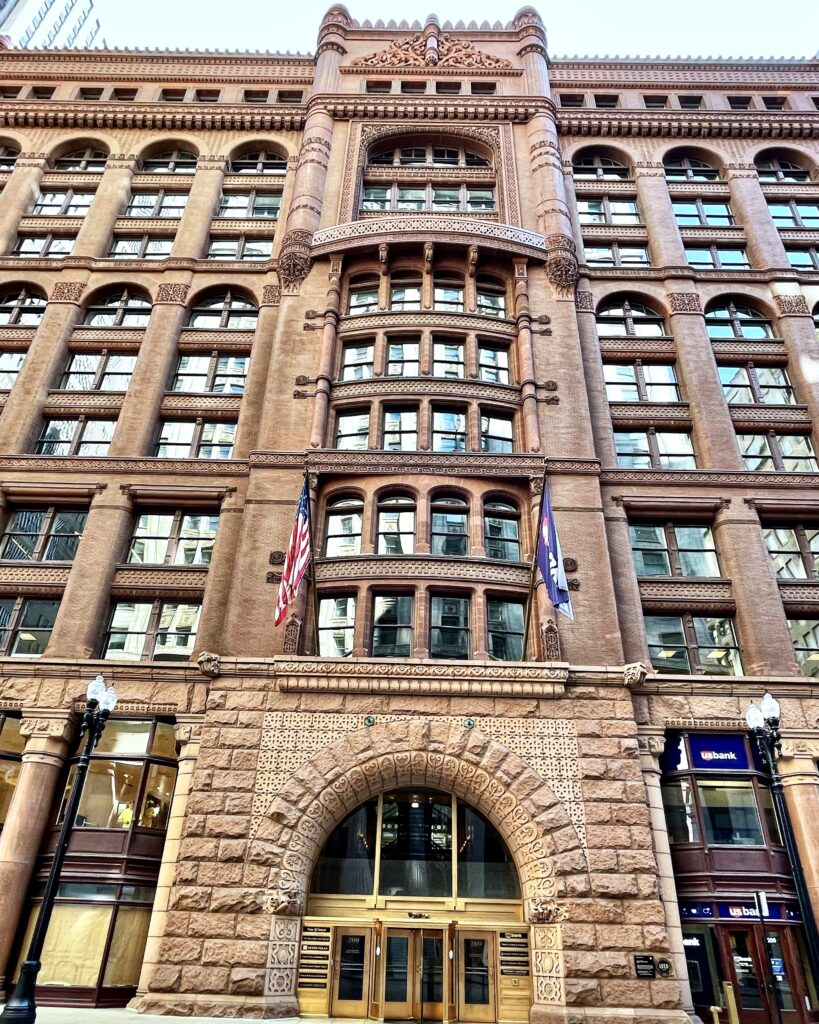
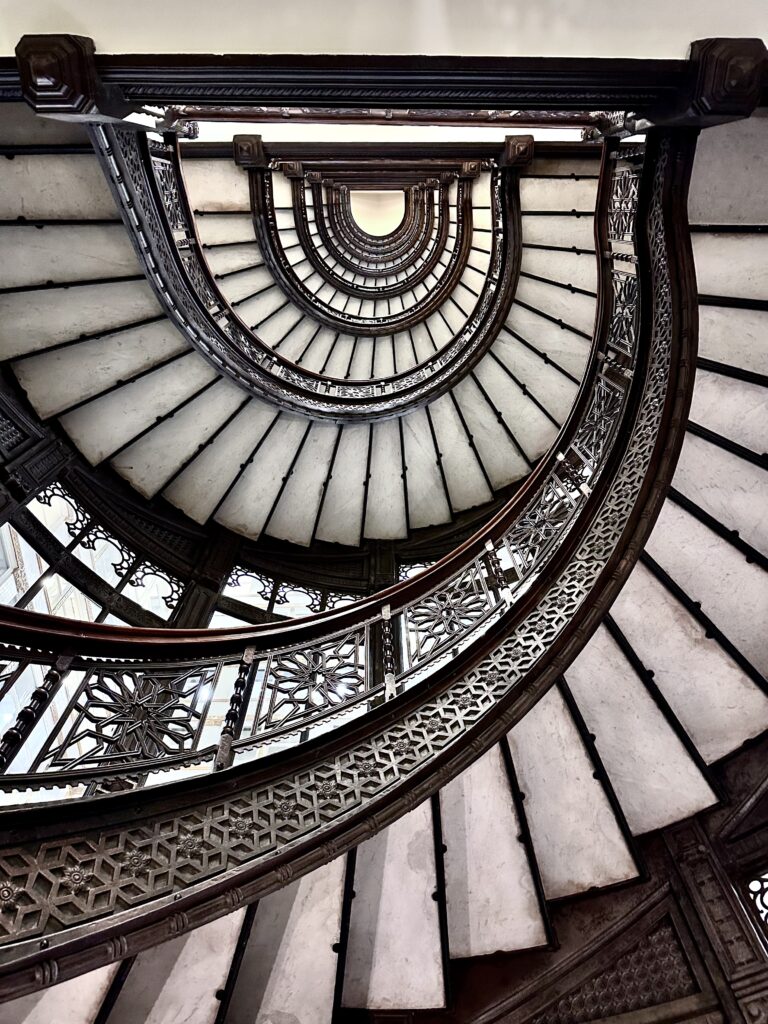
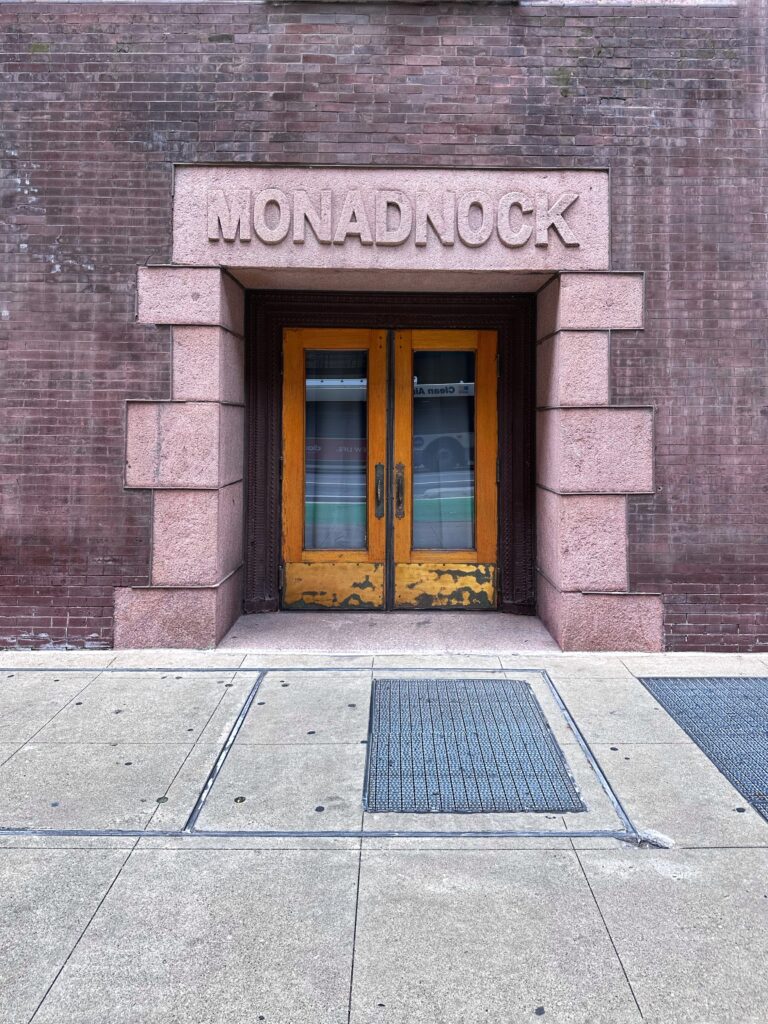
Peter Schoenhofen – Brewer
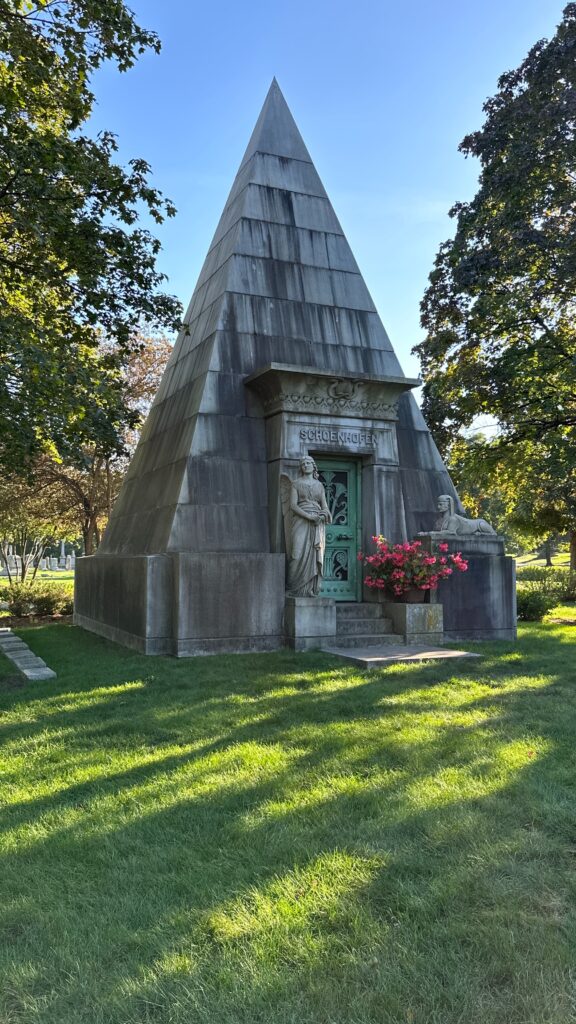
- A major Chicago brewer
- Enhanced beer production and expanded transport options
- His Pilsen brewery buildings are historic landmarks
- Mausoleum is a striking Egyptian-style pyramid
- Doorway flanked by Christian angel and Egyptian sphinx
- Door handle features snake and staff symbol (popular in Greek and Jewish traditions)
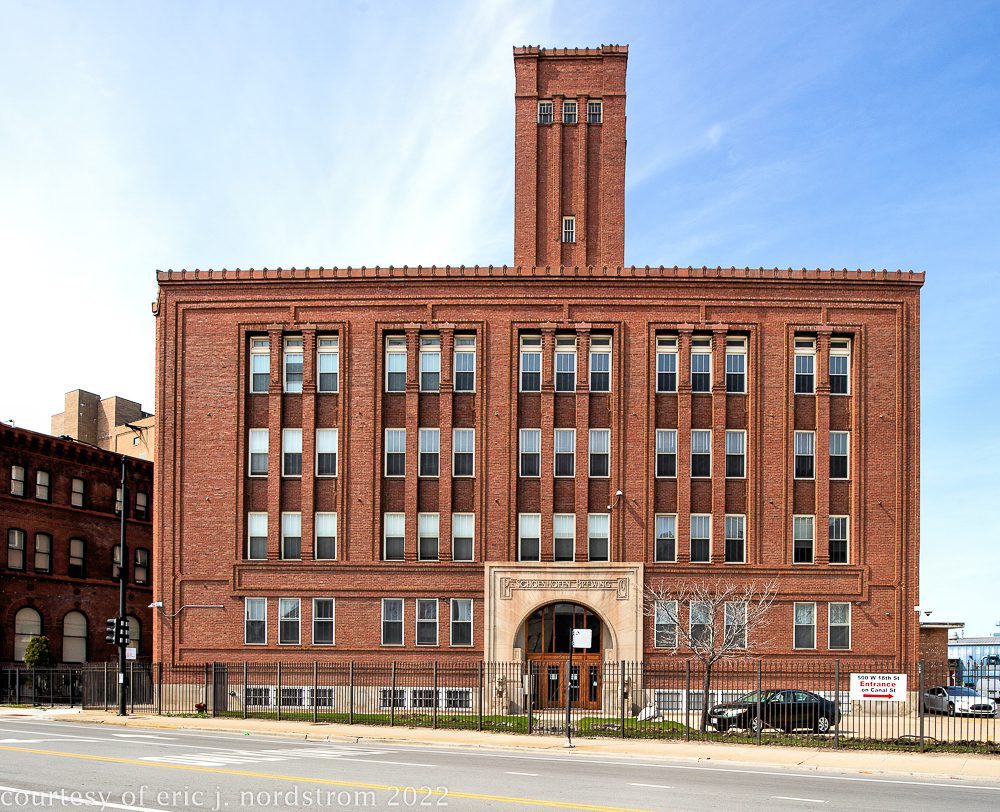
George Pullman – Pullman Palace Car Co.
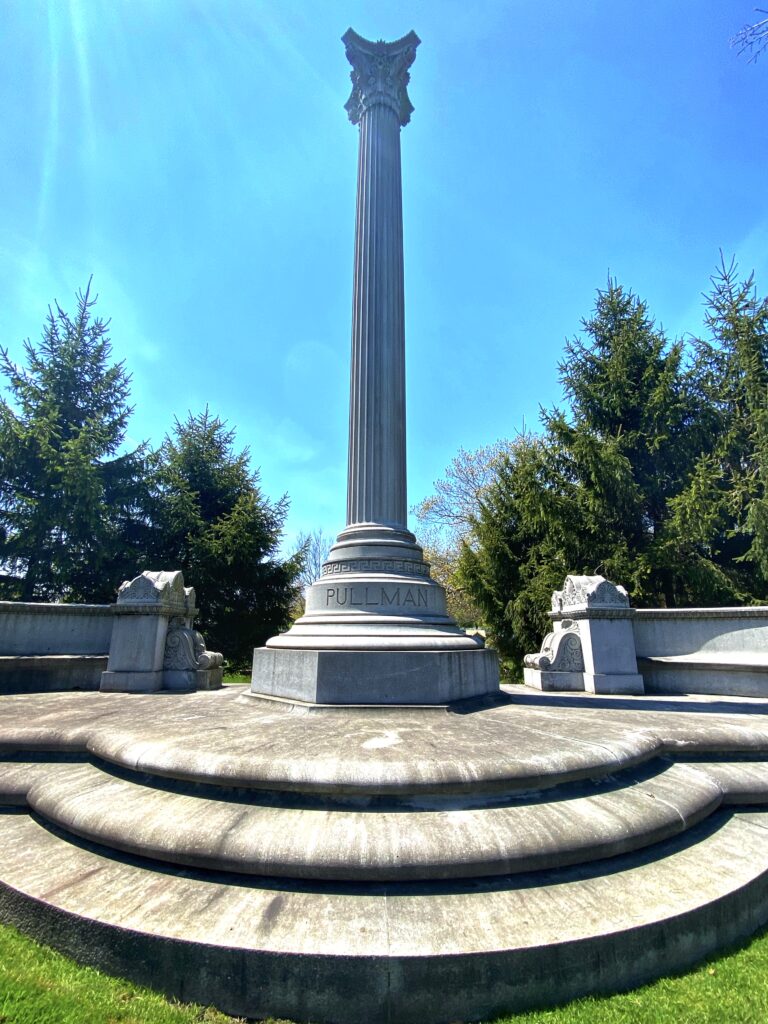
- Pullman first made money raising buildings
- Later founded Pullman Palace Car Company
- Created the company town of Pullman, IL
- One of the first to have indoor plumbing
- Started as a workers utopia
- Pullman lowered wages but not rent
- Pullman strike lasted 2 months
- First time feds were called in
- Tomb built with steel-reinforced concrete
- Tomb features a Corinthian column
- Pullman is now a National Historical Park
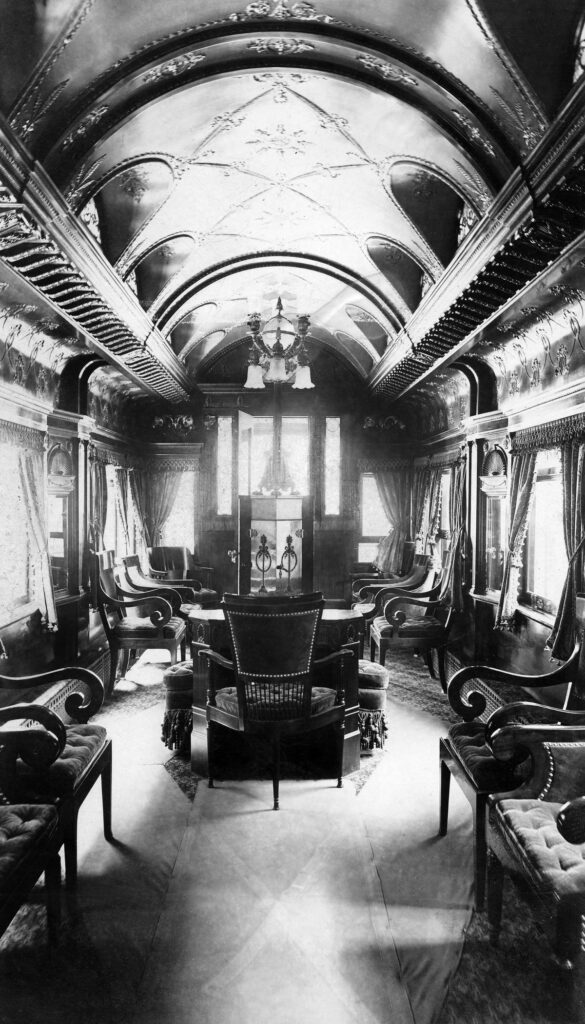
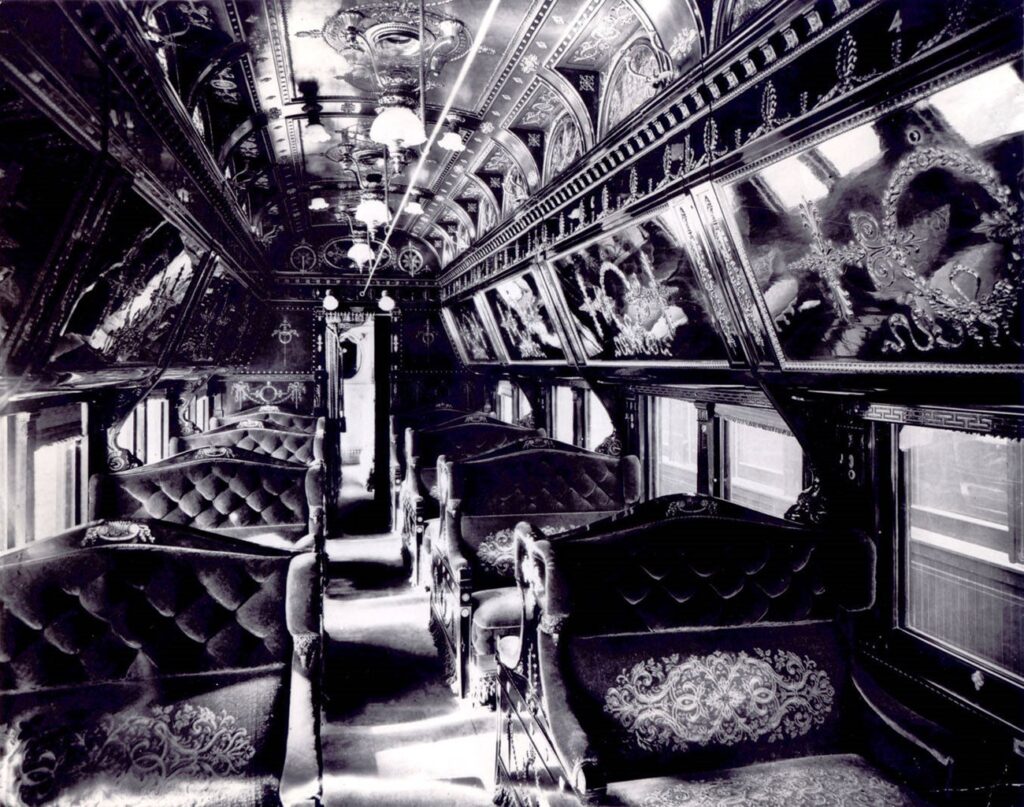
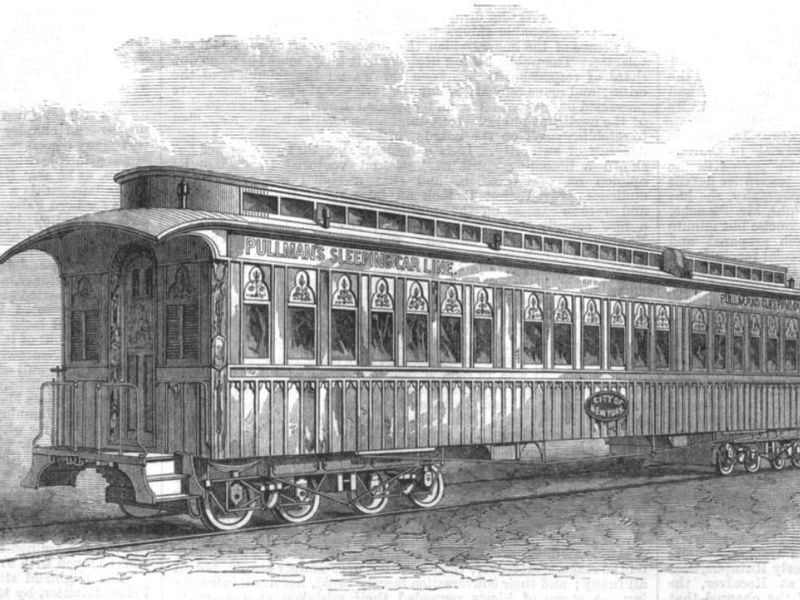
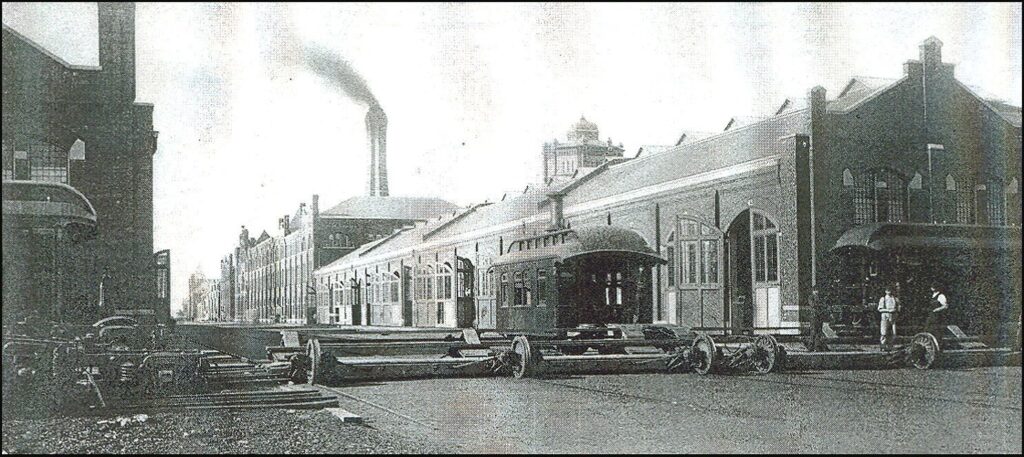
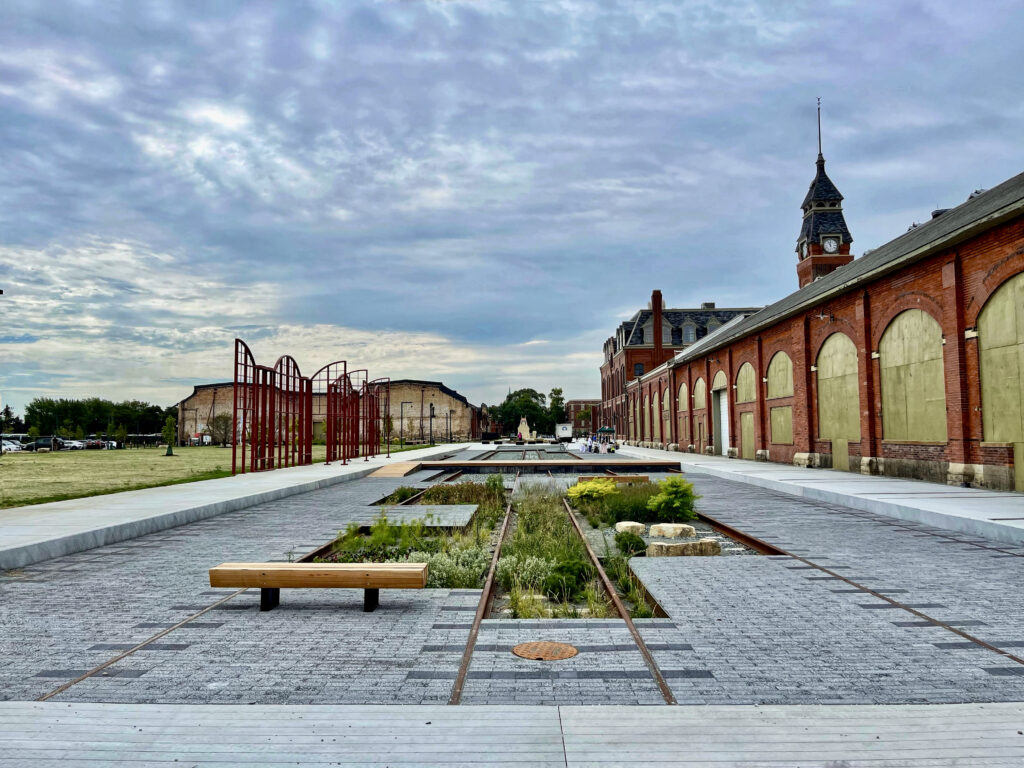
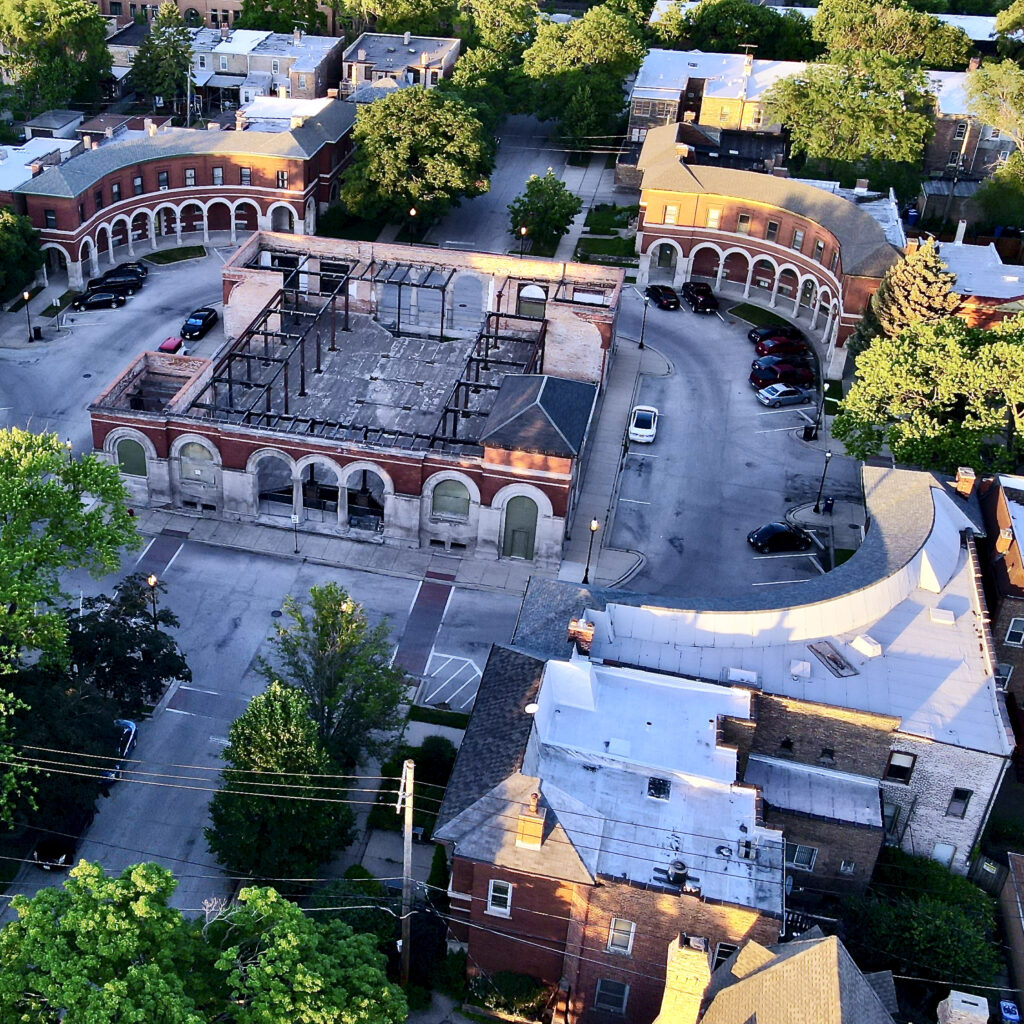
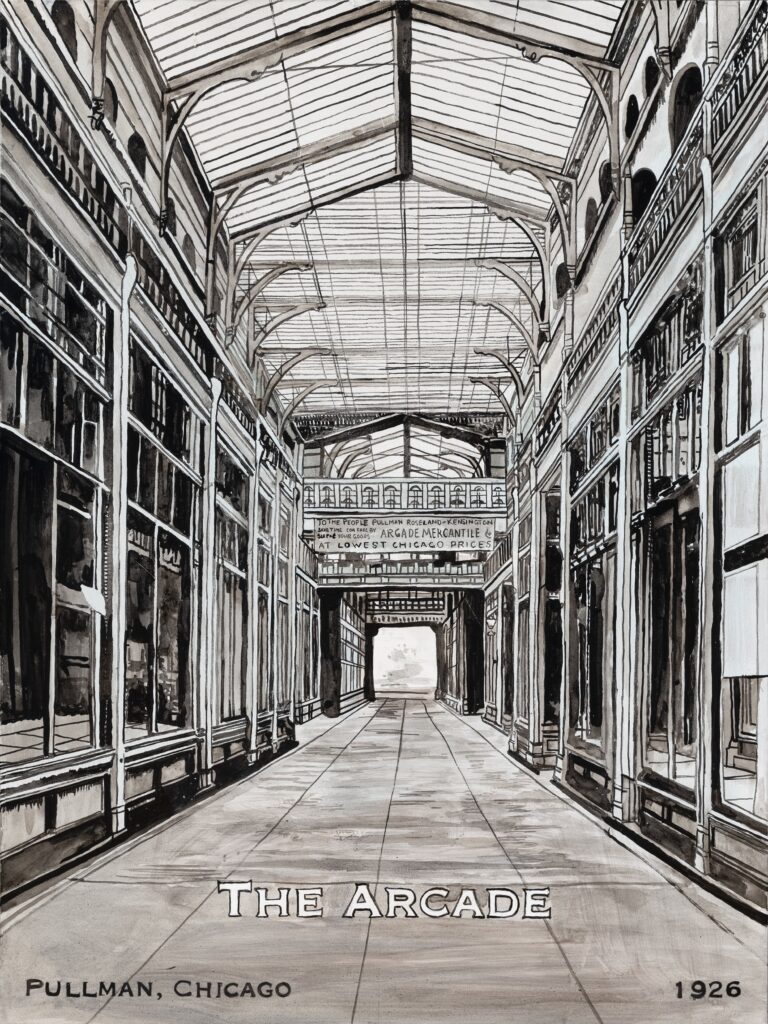
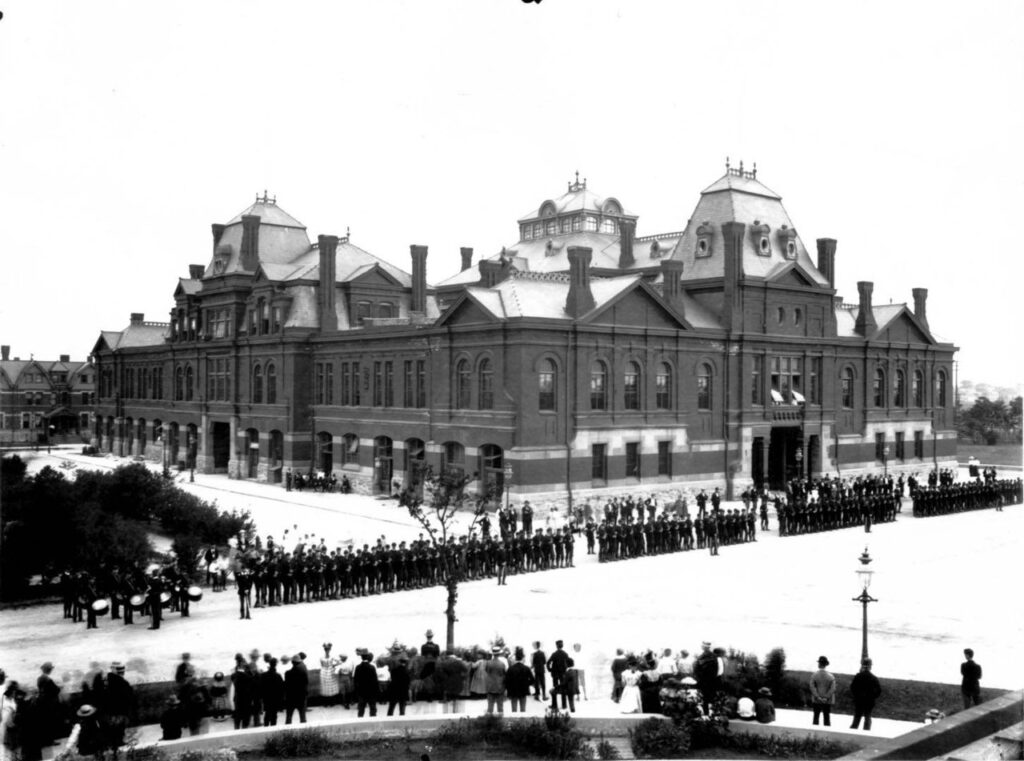
Ryerson Family Mausoleum
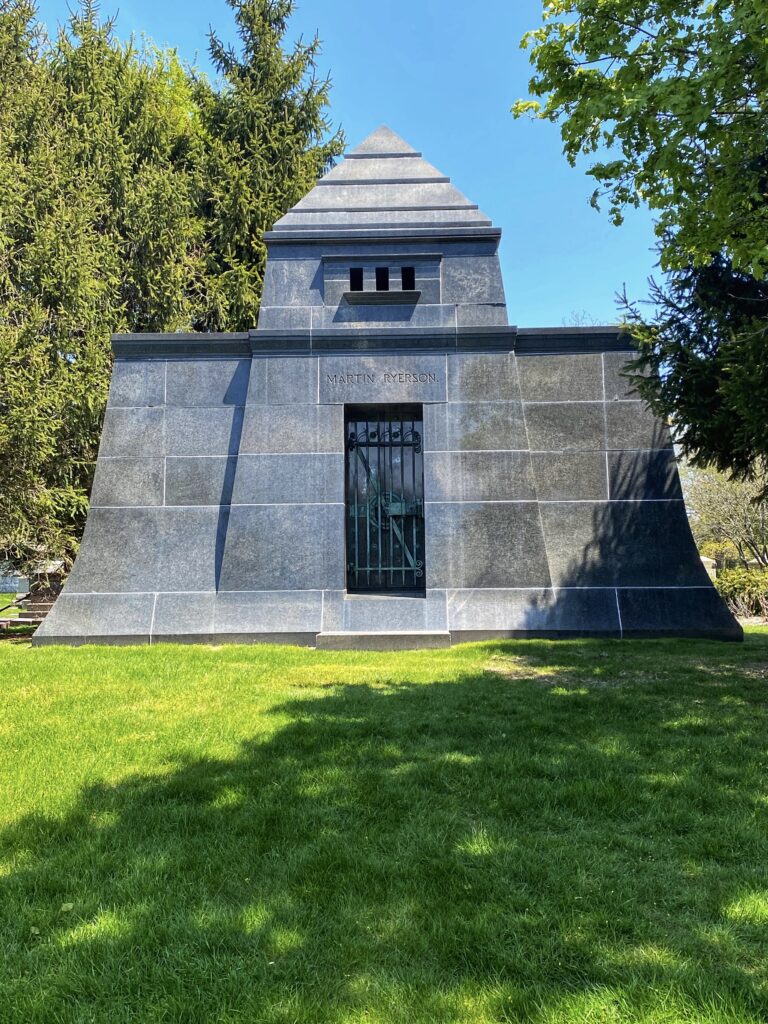
- Martin Ryerson Sr.
- Lumber Baron and Real Estate Mogul
- Started out trading furs in Michigan at age 16!
- Martin Jr. joined the family lumber business after practicing law
- Ryerson Sr. helped found UChicago and Field Museum
- Served as Art Institute trustee and on UChicago’s first board
- Designed by Louis Sullivan in 1887
- Tomb blends Egyptian styles: Pyramid and Mastaba
- Mastabas are shaped like a long low bench
- Atypical design for Sullivan, who was still developing his style

- An Egyptian Mastaba
William Kimball – Kimball Pianos
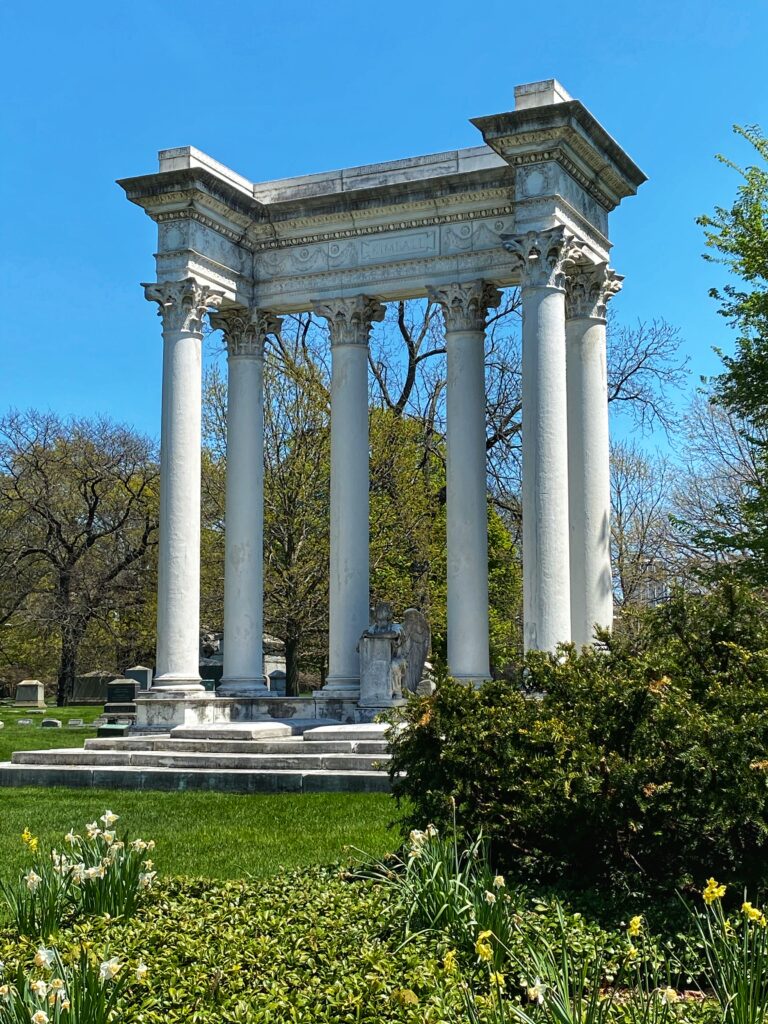
- Kimball made his fortune in real estate
- Bought a Chicago music store before 1857 panic
- Began making pianos and organs in 1879
- Launched full-scale production by 1882
- Kimball Avenue is named after him
- Mausoleum marble slabs resemble piano keys
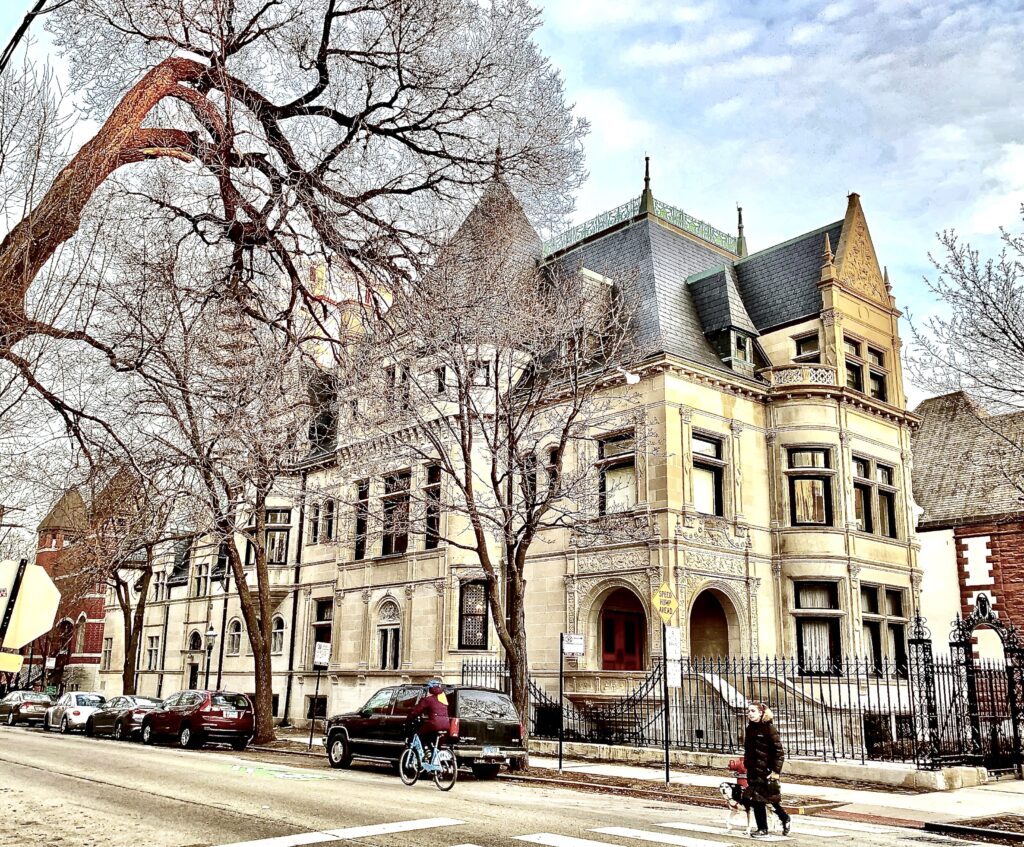
- Kimball’s Chateauesque Mansion
- South Prairie Ave
Louis Sullivan – Adler & Sullivan
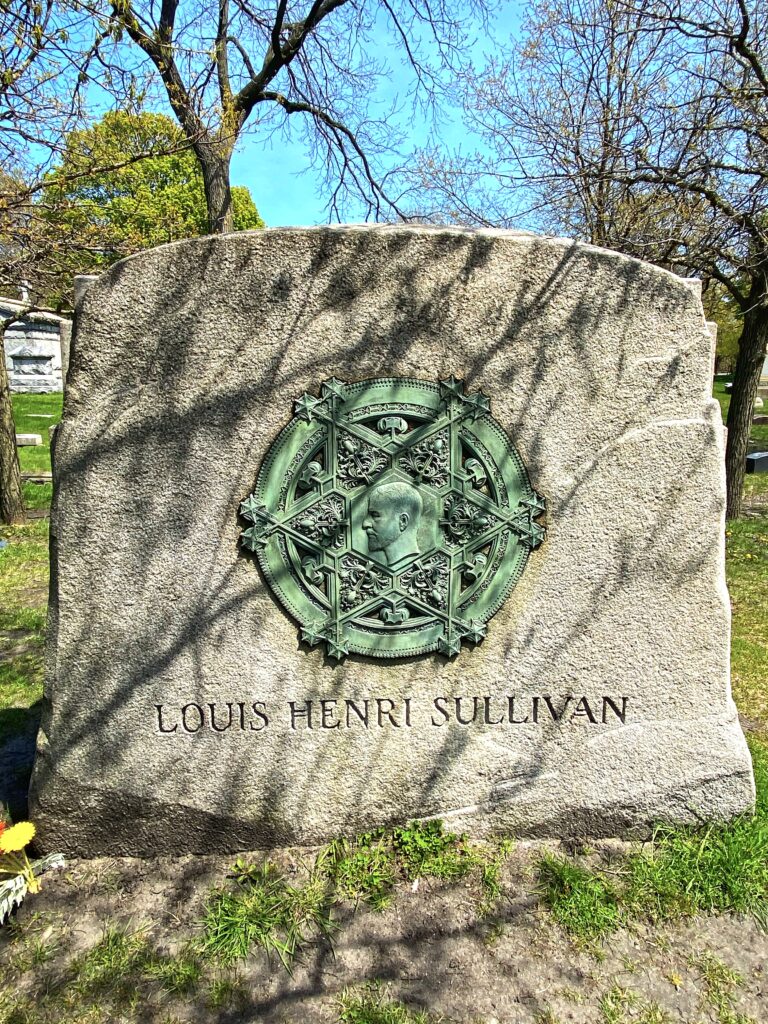
- Sullivan: key figure in Chicago School
- “form ever follows function”
- Designed Auditorium Theatre, Carson-Pirie Scott, Krause Music Store
- Mentored Frank Lloyd Wright
- Fired Wright for moonlighting
- Style mixed geometry massing with rich ornamentation
- Died penniless
- Buried with a small marker at first
- Later memorial designed by friend Thomas Tallmadge
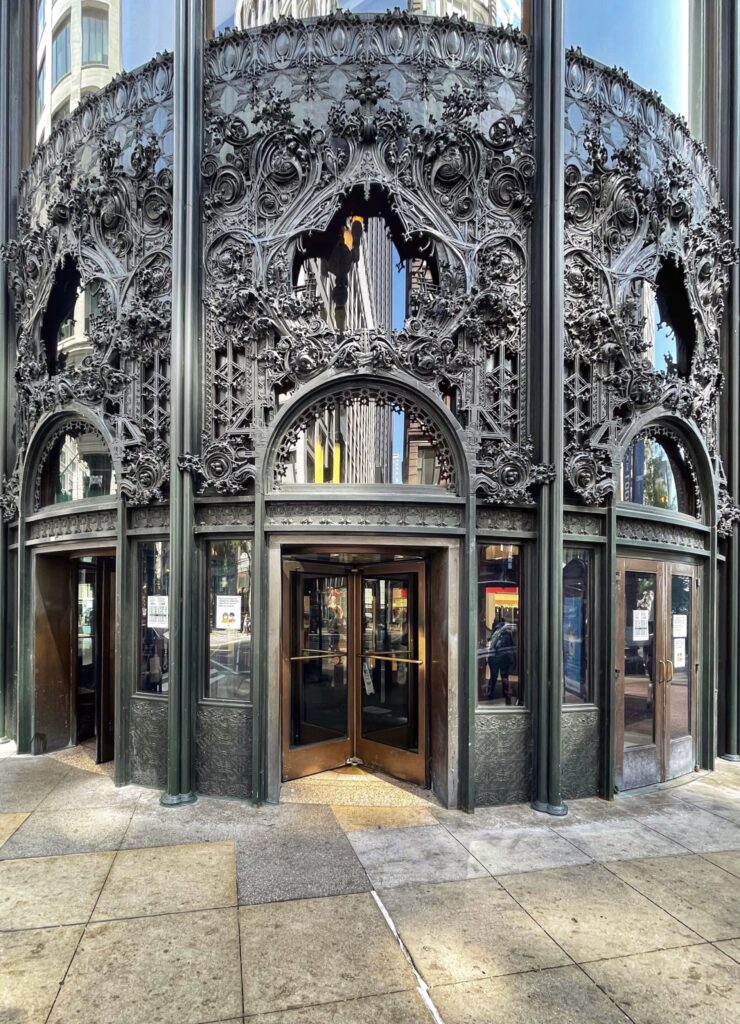
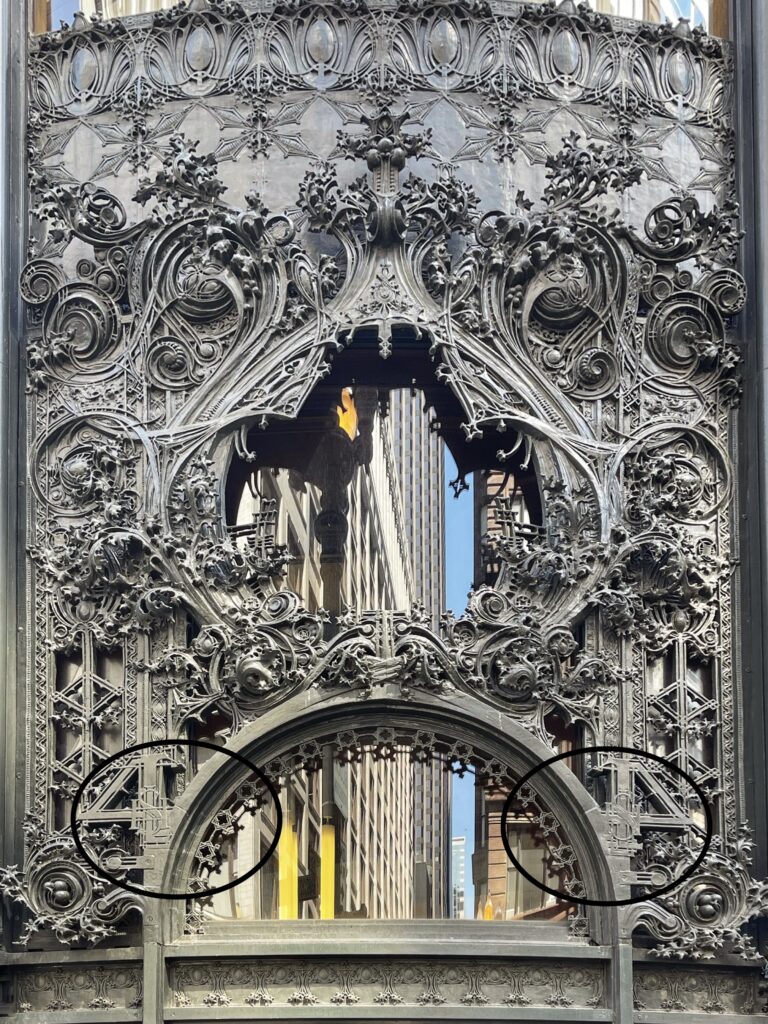
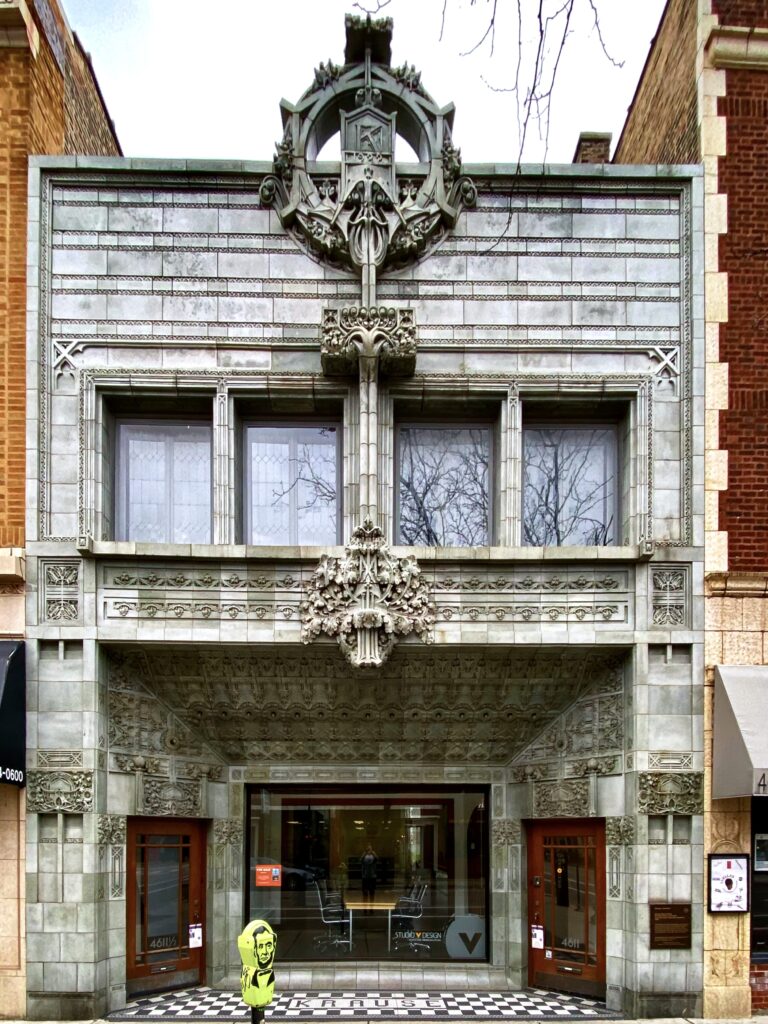
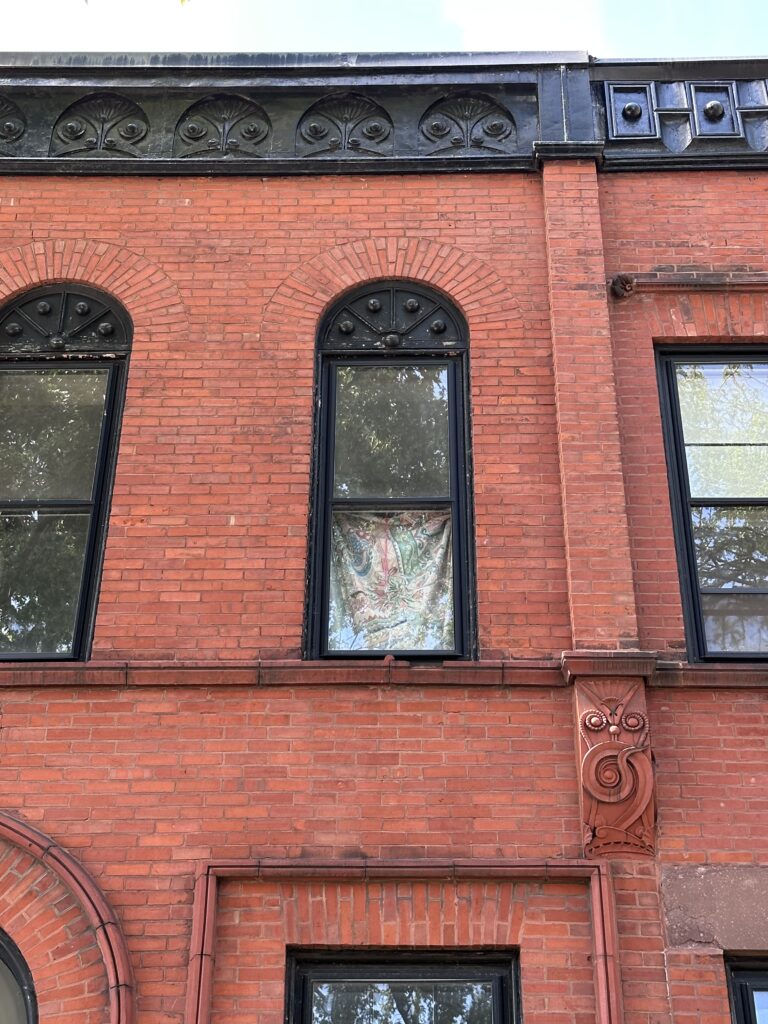
William Goodman – Goodman Theater
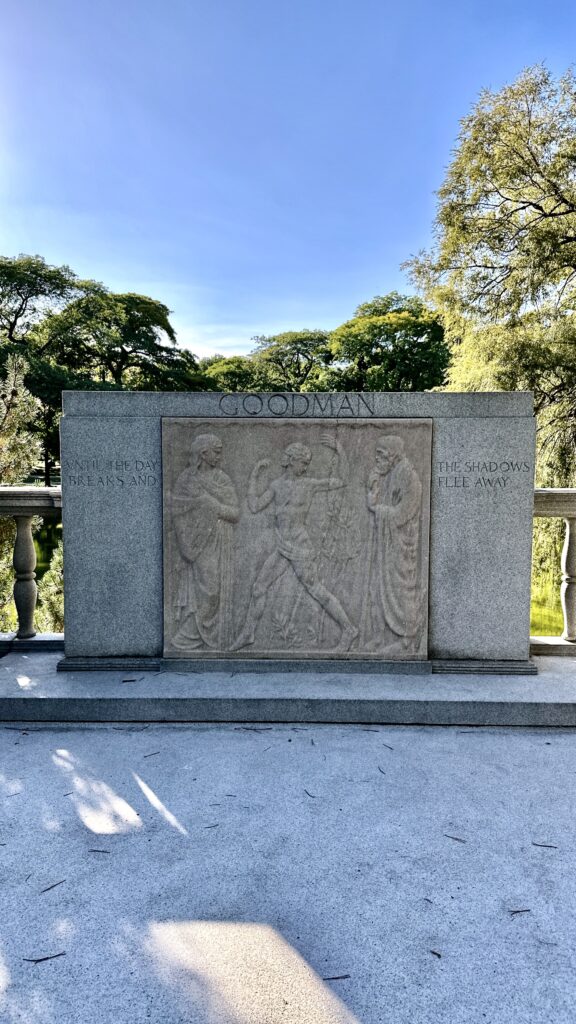
- Chicago lumber tycoon
- Founded the Goodman Theatre in memory of his son
- Son Kenneth was a playwright with big theatrical visions
- Kenneth died young
- Tomb designed by Howard Van Doren Shaw
- Kenneth’s diary is at the Newberry Library
- Speaks of turn-of-the-century high-society life
- Club meetings, formal dinners, trips on yachts,
- Being prescribed cocaine for headaches!
- His play A Game of Chess was performed worldwide
- Many manuscripts preserved at Newberry Library – handwritten!
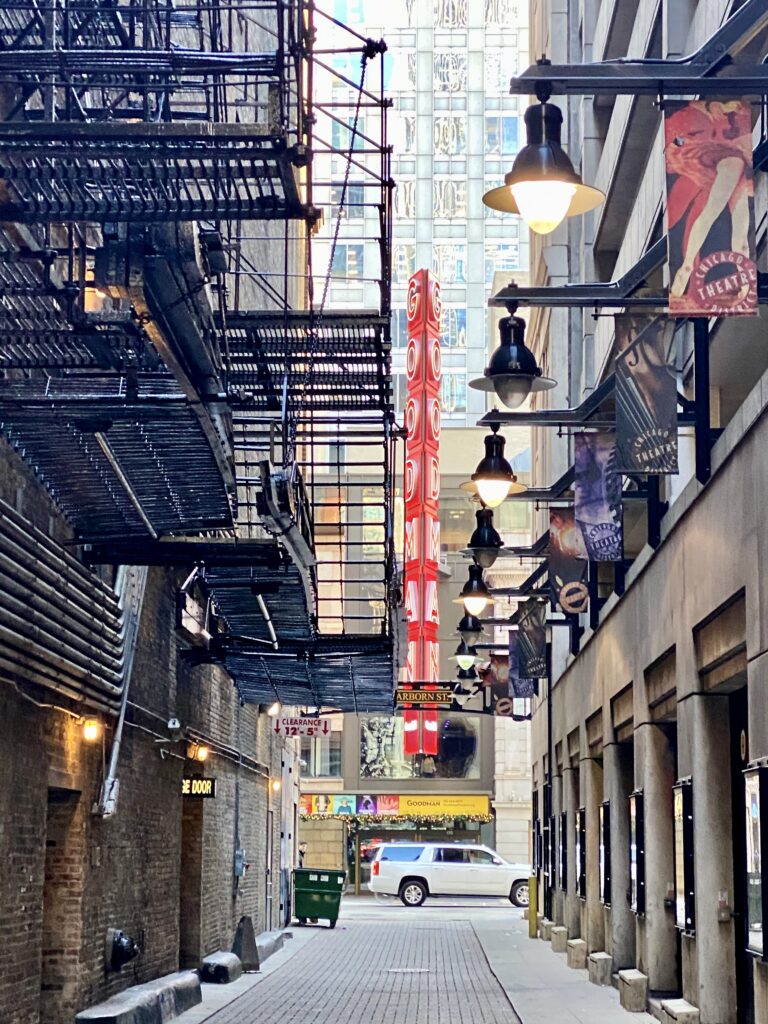
- Vintage neon sign seen from Alley Of Death
- Site of the Iroquois Theatre fire 1903
- 602 people died – many children
- Theater only 1 month old
- Considered to be architecturally superior
- Considered to be fireproof
- Code changes: outward-opening doors that remain unlocked, exit lights, automatic sprinklers, fire alarm systems, and flame resistant scenery, props, and curtains.
Potter & Bertha Palmer – Palmer House
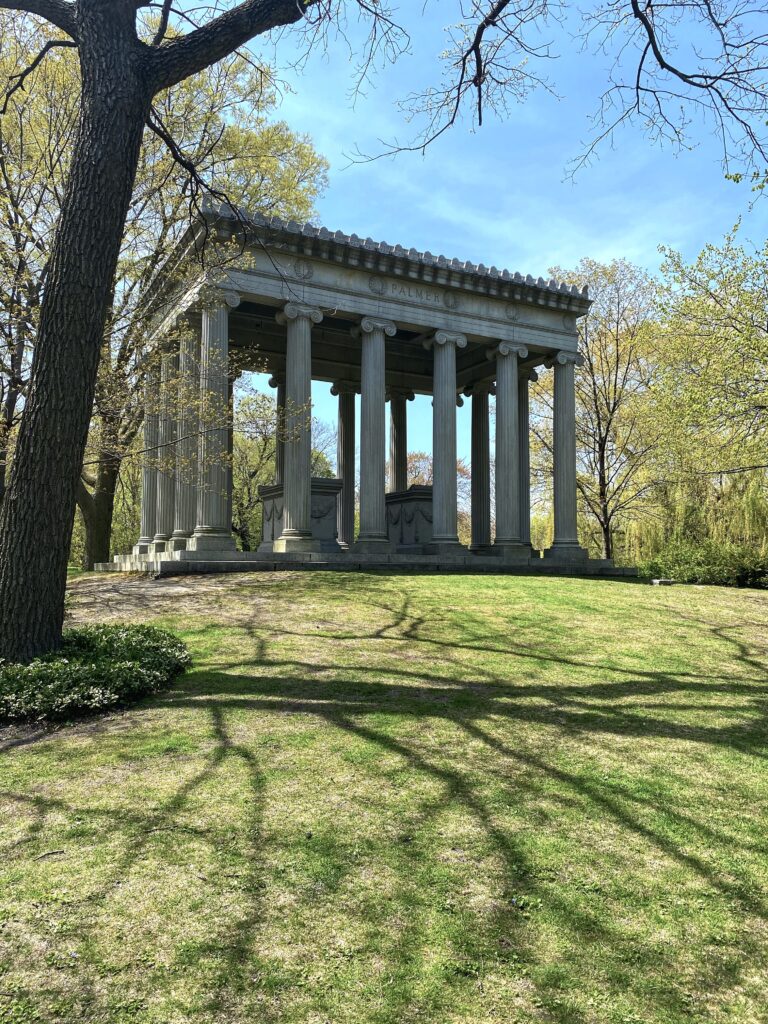
- Potter Palmer opened a women-focused store in 1852
- Pioneered window displays, free delivery, returns, and charge accounts
- “Palmer system” changed retail practices forever
- Partnered with Field and Leiter—became Marshall Field & Co.
- Later built the Palmer House Hotel and invested in real estate
- Helped plan Lake Shore Drive, CBOT, and the 1893 World’s Fair
- Bertha was half his age
- Became queen of high society and “invented” the brownie
- Brownies debuted as “portable desserts”
- Packed in box lunches at the 1893 Fair, baked at Palmer House kitchen
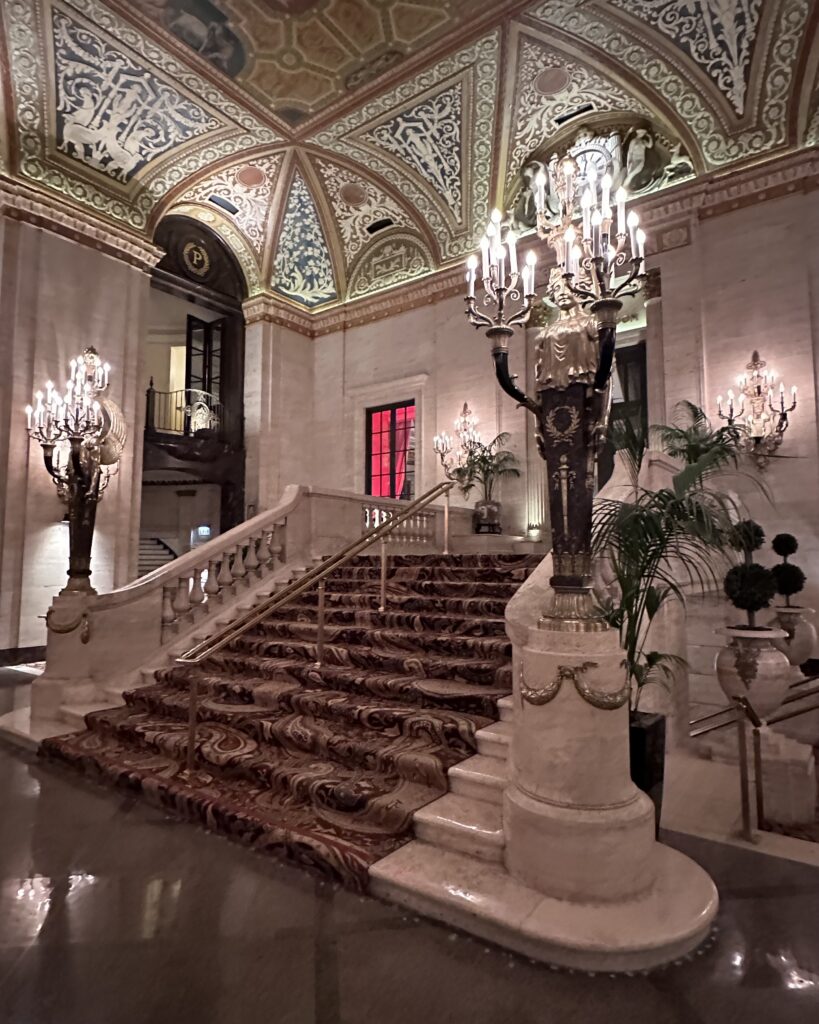
Charles Wacker – Wacker Drive
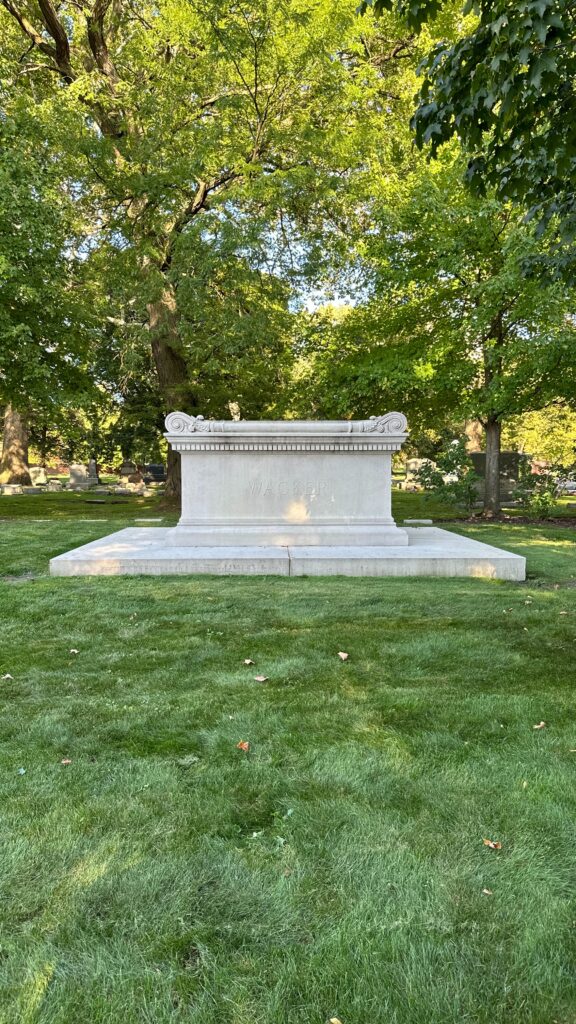
- Chicago-born businessman and philanthropist
- Wacker Drive named for him
- Youngest director of the 1893 World’s Fair at age 37
- Championed Burnham’s Plan of Chicago as Plan Commission chair
- Advocated for public spaces like the lakefront
- Lived in Old Town Triangle in a cottage built by his father
- Father Frederick Wacker was a German “48’er” immigrant
- The Wackers and Burnham shaped modern Chicago
- The Wackers partnered with Michael Diversey in brewing
- Diversey Parkway named after their brewery partner
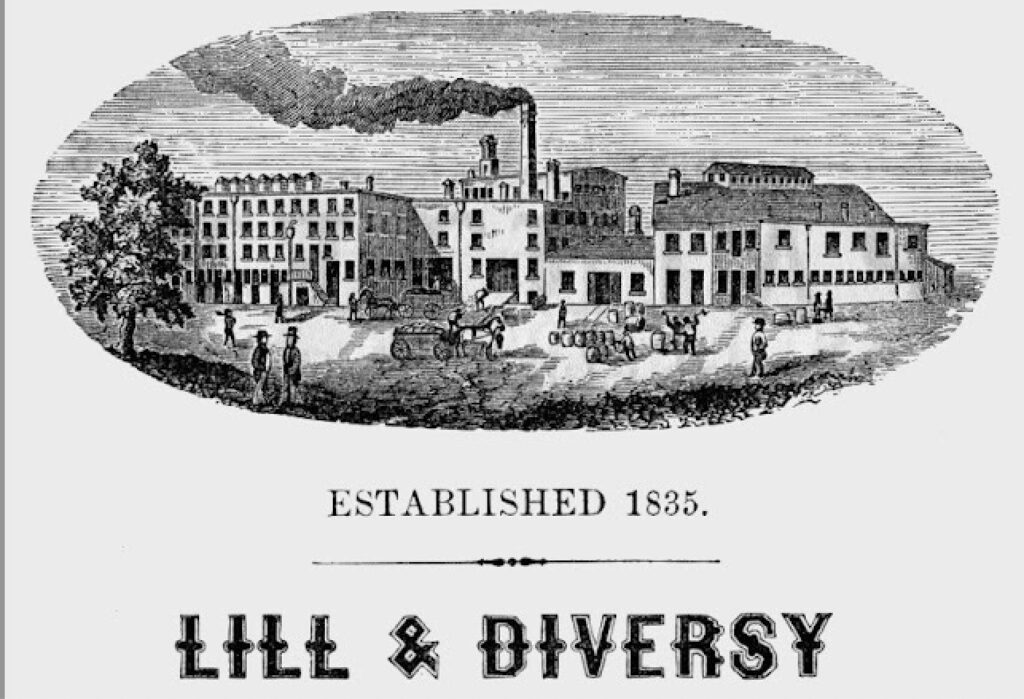
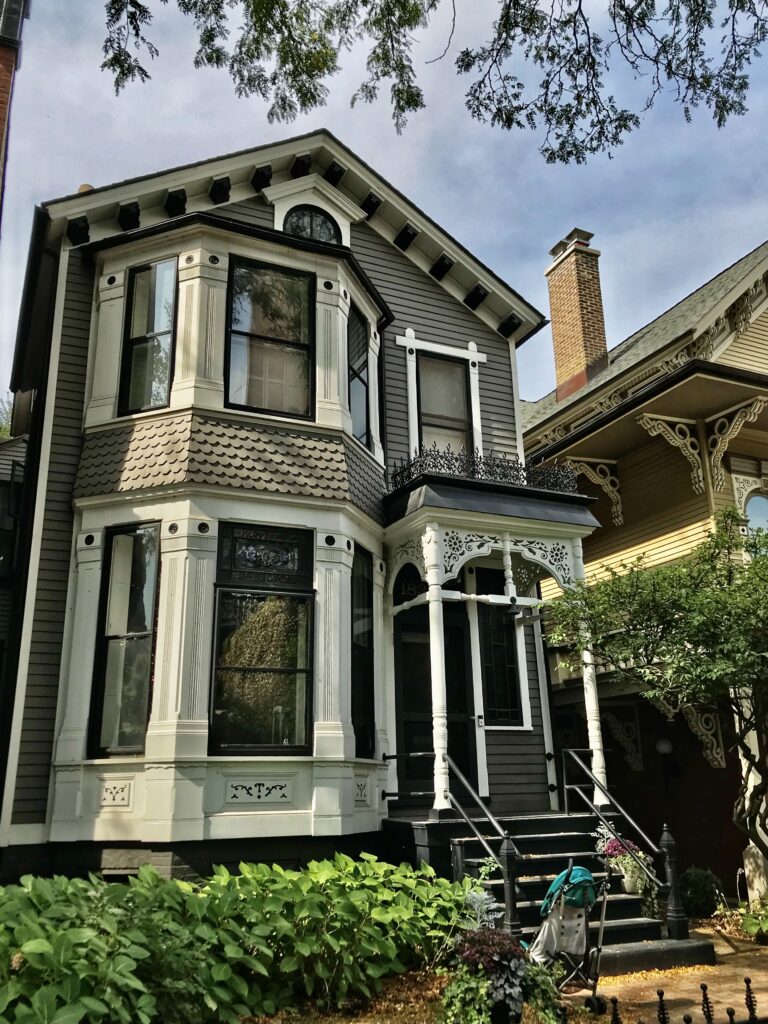
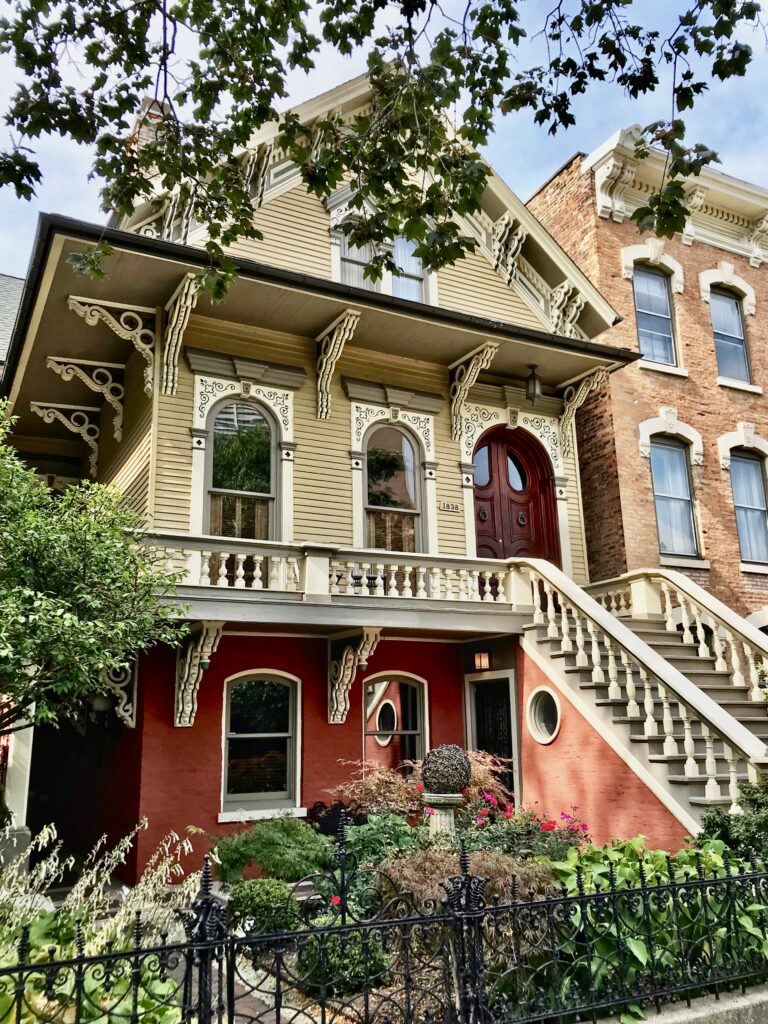
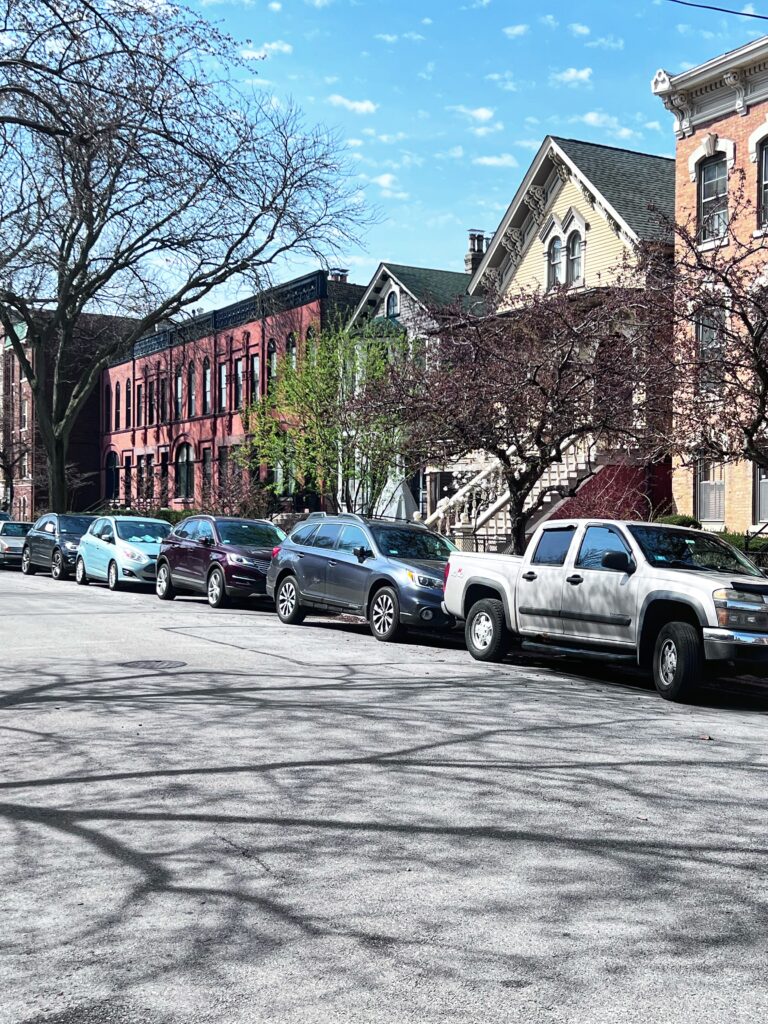
Daniel Burnham – Burnham & Root
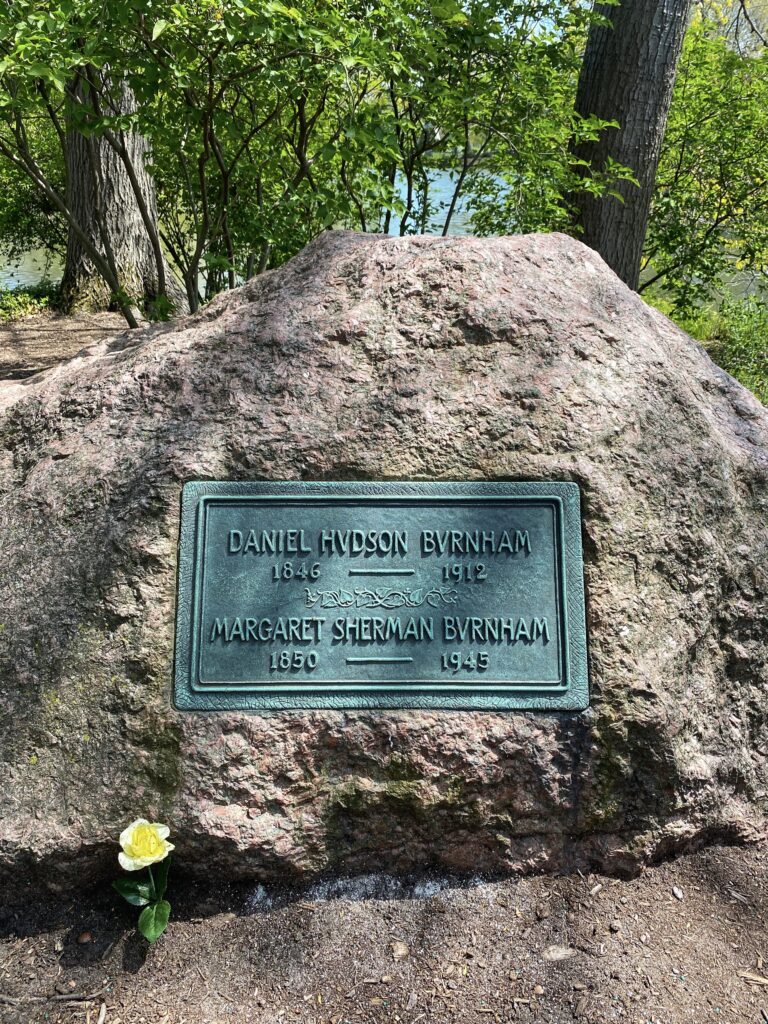
- Burnham’s famous quotes: “Make no little plans…” (1910)
- “Keep all the shore for the people”
- Started as a draftsman for Jenney
- Co-founded Burnham & Root 1873
- Designed the Rookery, Monadnock, Fisher, and NYC’s Flat Iron building
- Led design 1893 World’s Fair
- Created the landmark 1909 Plan of Chicago
- His son, Burnham Jr., designed the Carbide & Carbon Building
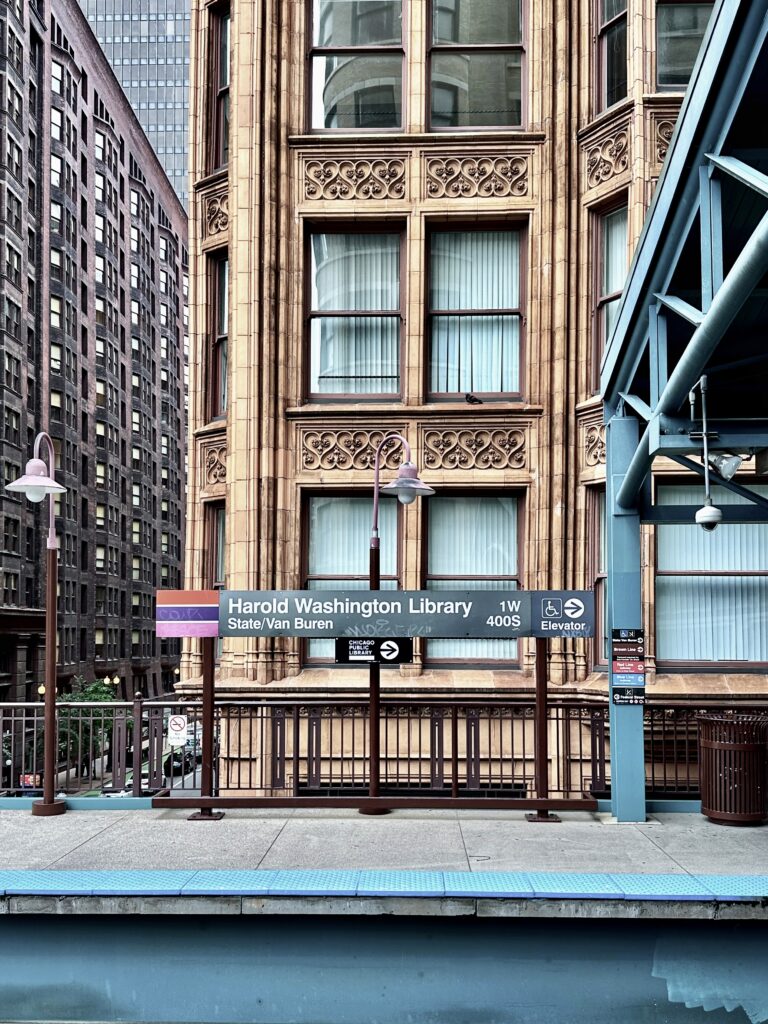
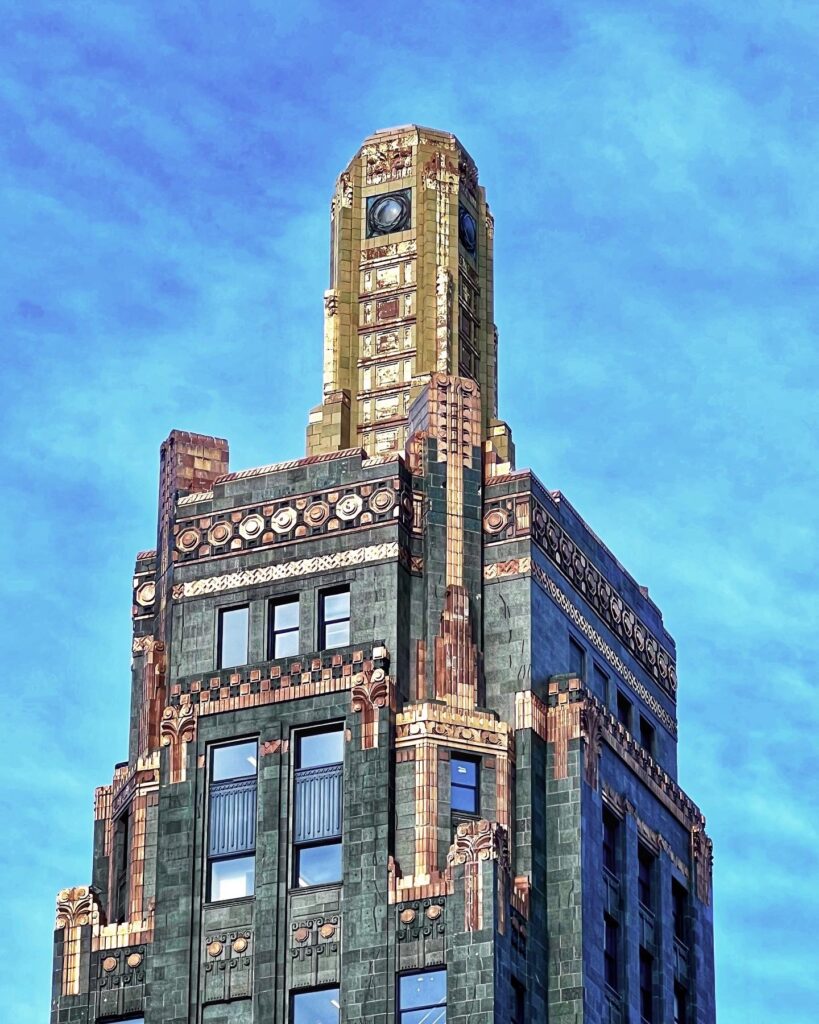
Getty Family Mausoleum
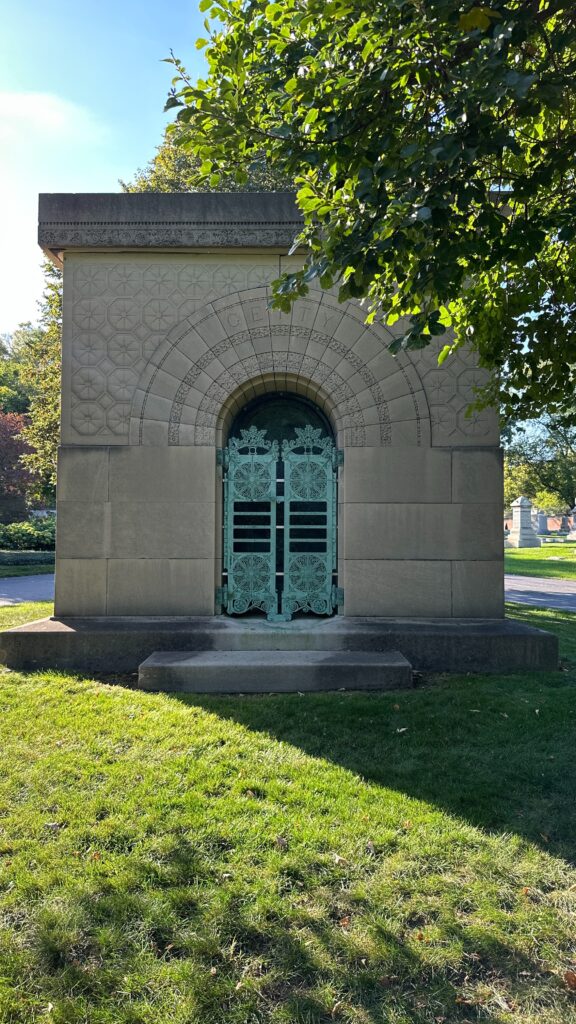
- For Carrie Eliza Getty 1890
- By husband Henry Harrison Getty
- Getty was a Lumber Baron
- Partner was Martin Ryerson
- Designed by Louis Sullivan—one of his finest works
- Chicago Landmark 1971
- Frank Lloyd Wright called it “entirely Sullivan’s own, a piece of sculpture, a statue, a great poem.”
Ludwig Mies van der Rohe – Bauhaus Director
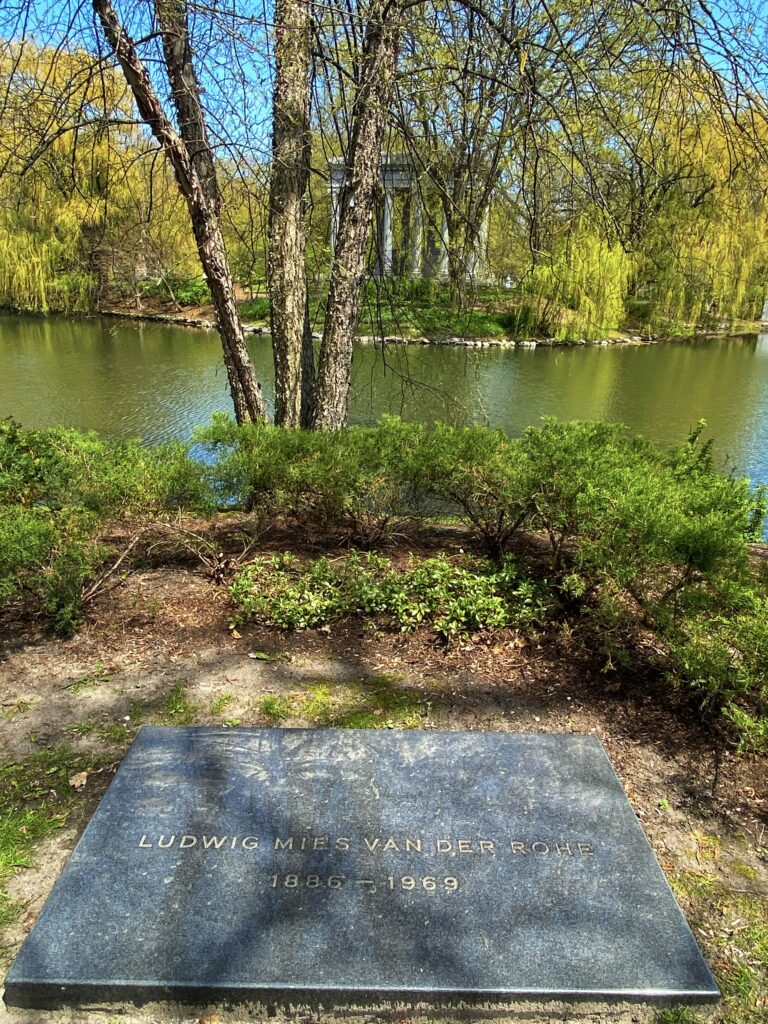
- Director of Bauhaus School
- Simplicity, Functionality, Honesty
- Known for open space and exposed materials
- Famous quip, “Less Is More”
- Founded the Second Chicago School of Architecture
- Modern look called International Style
- Became head of architecture at IIT
- Designed IIT campus master plan and key buildings
- His Chicago works include 860–880 Lake Shore Drive and Loop Post Office
- Calder’s Flamingo sculpture stands here
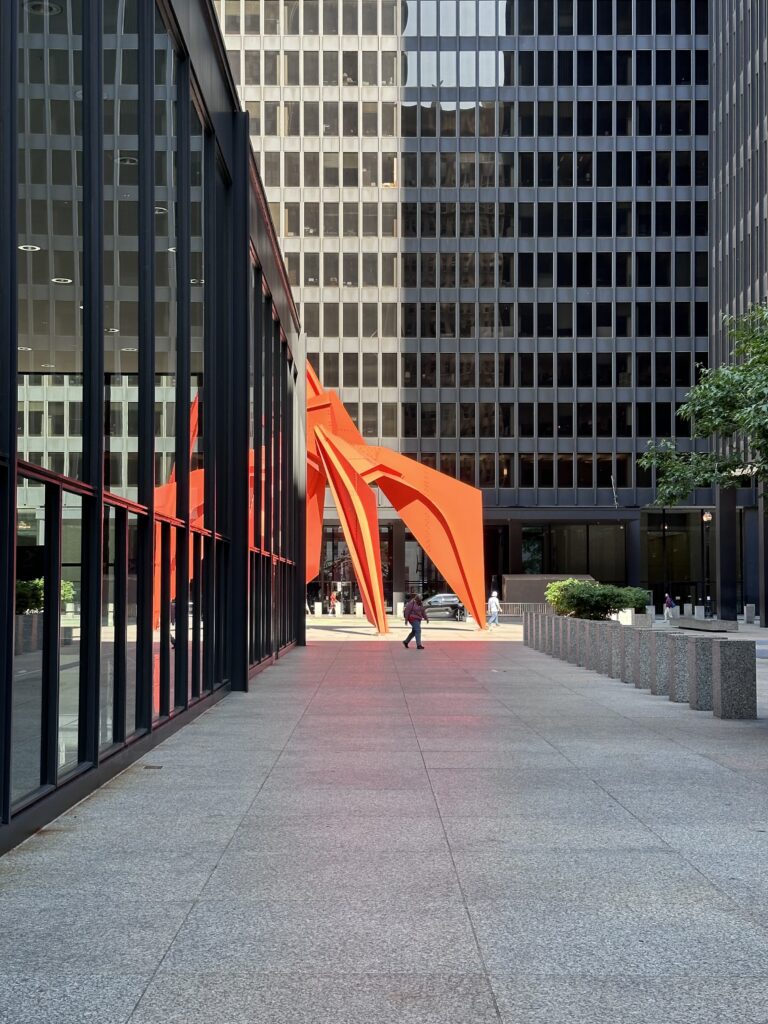
Ernie Banks – Chicago Cubs
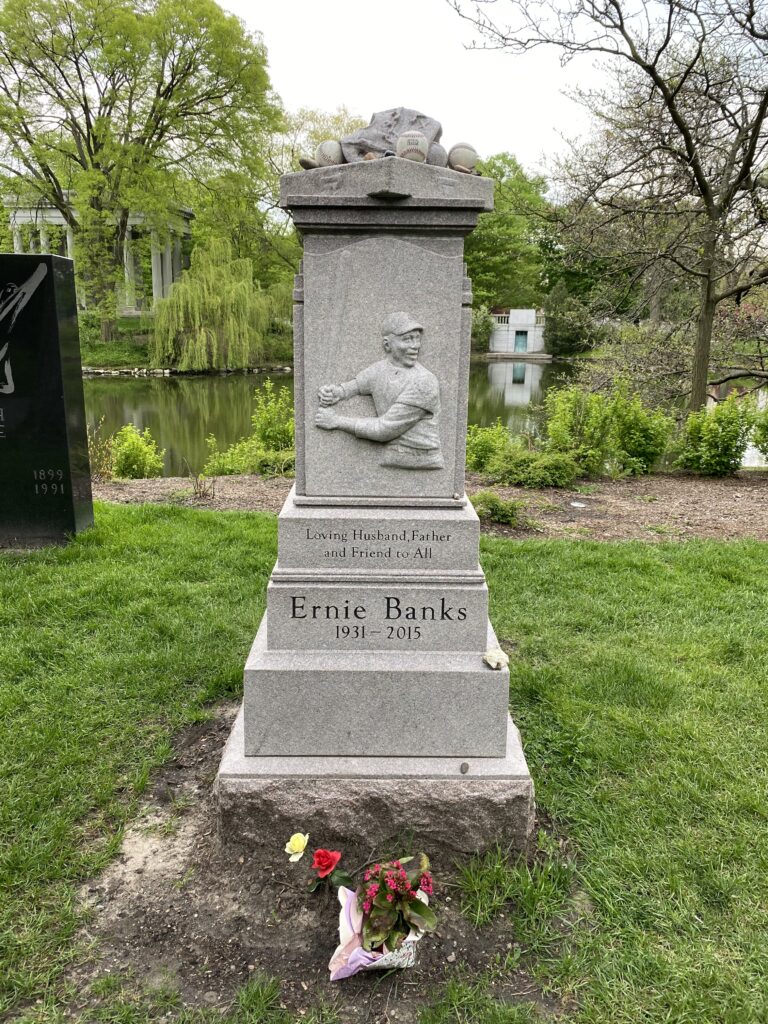
- Ernie Banks played for the Cubs (1953–1971)
- Known as “Mr. Cub”
- First African-American player for Cubs
- First African-American to go straight to MLB without playing in Minor Leagues
- Considered one of the Cubs’ all-time greats
- Multiple awards and accolades
- Presidential Medal of Freedom 2013
- Passed 2 years later 2015
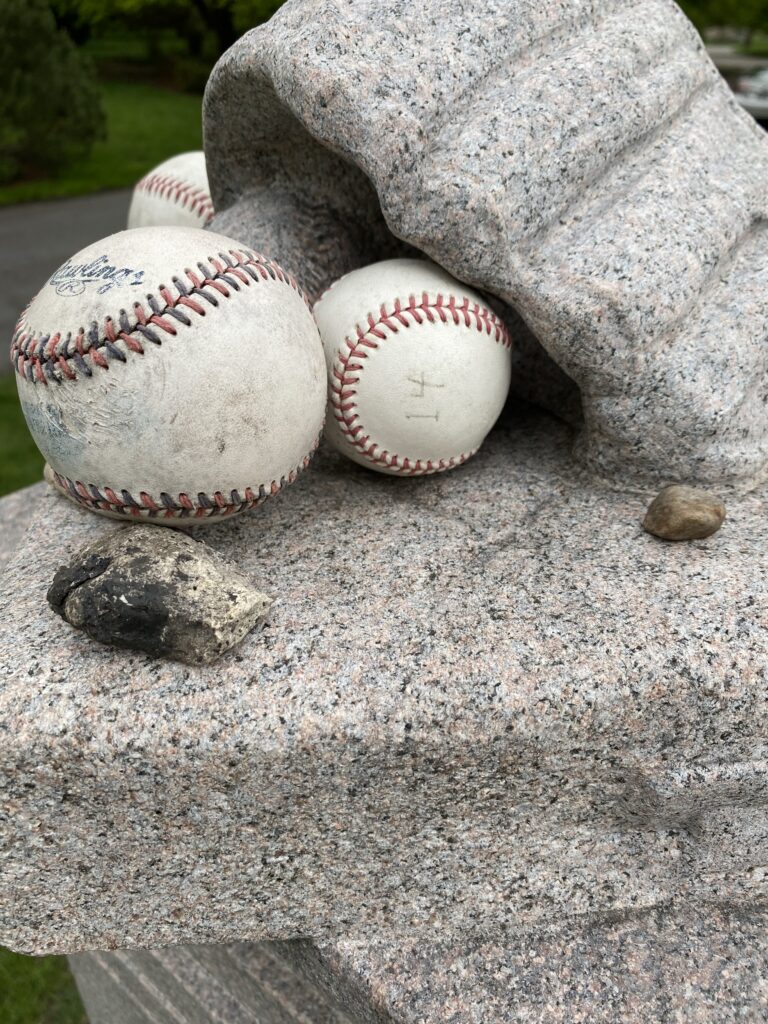
Richard Nickel – Photographer & Historian
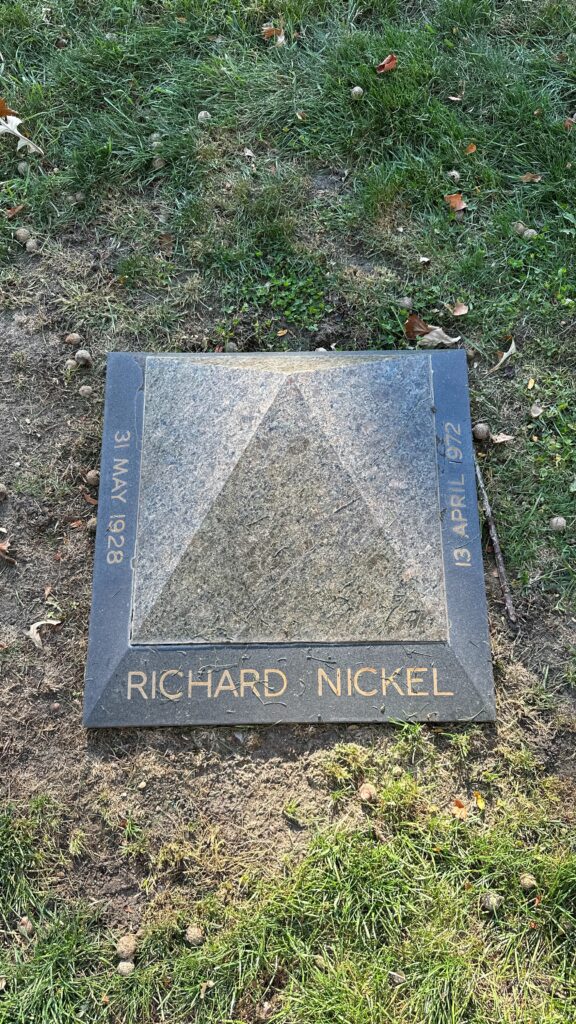
- Noted architectural photographer
- Spent 20+ years documenting Sullivan’s buildings
- Salvaged architectural fragments from demolition sites
- Helped preserve history during widespread destruction
- Old Town Triangle became one of the first landmarked U.S. neighborhoods 1977
- His death occurred just before Chicago’s landmark laws began
- Died in 1972 (age 44) during demolition of Sullivan’s Stock Exchange
- Nickel’s body was found weeks later beneath rubble
- He’s buried near Louis Sullivan, whose work he helped save
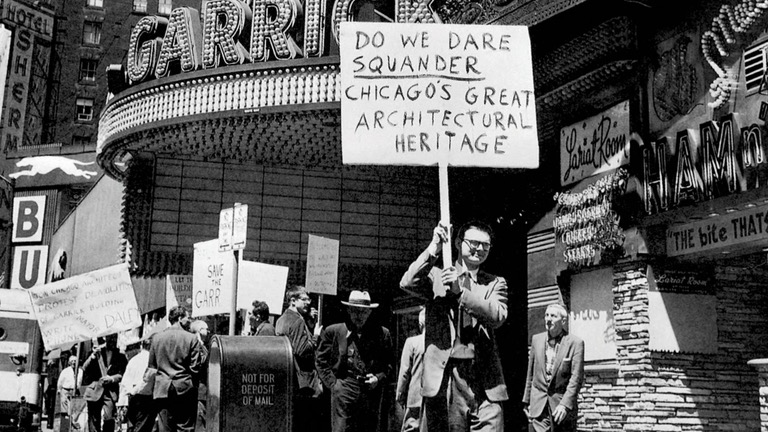
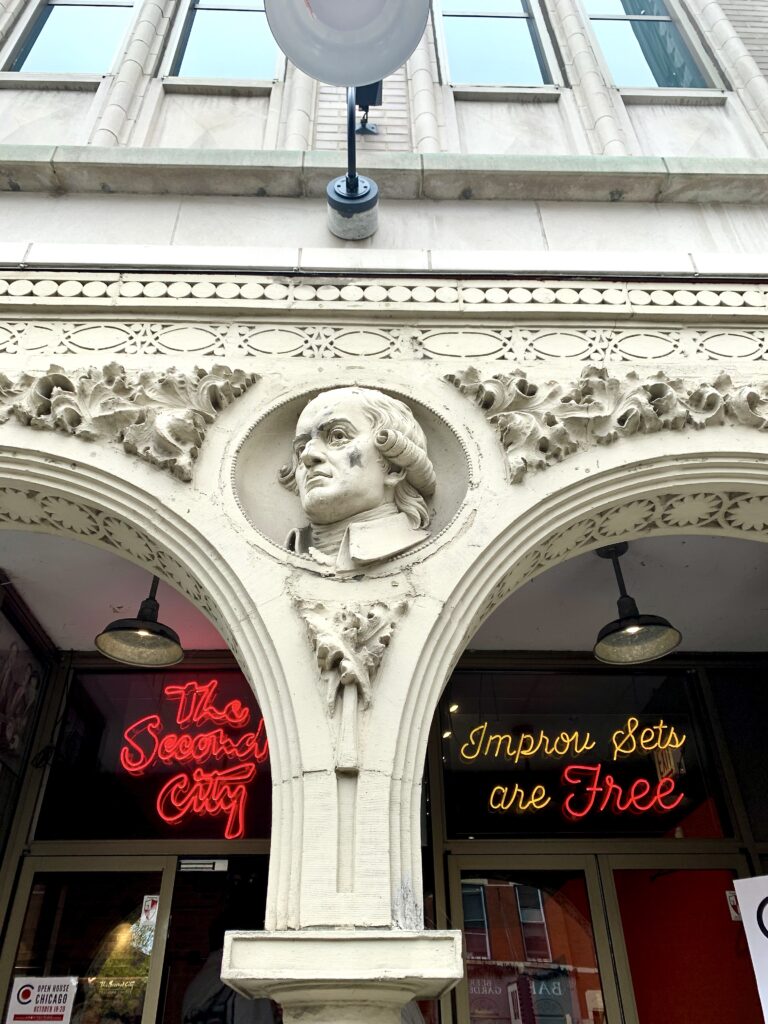
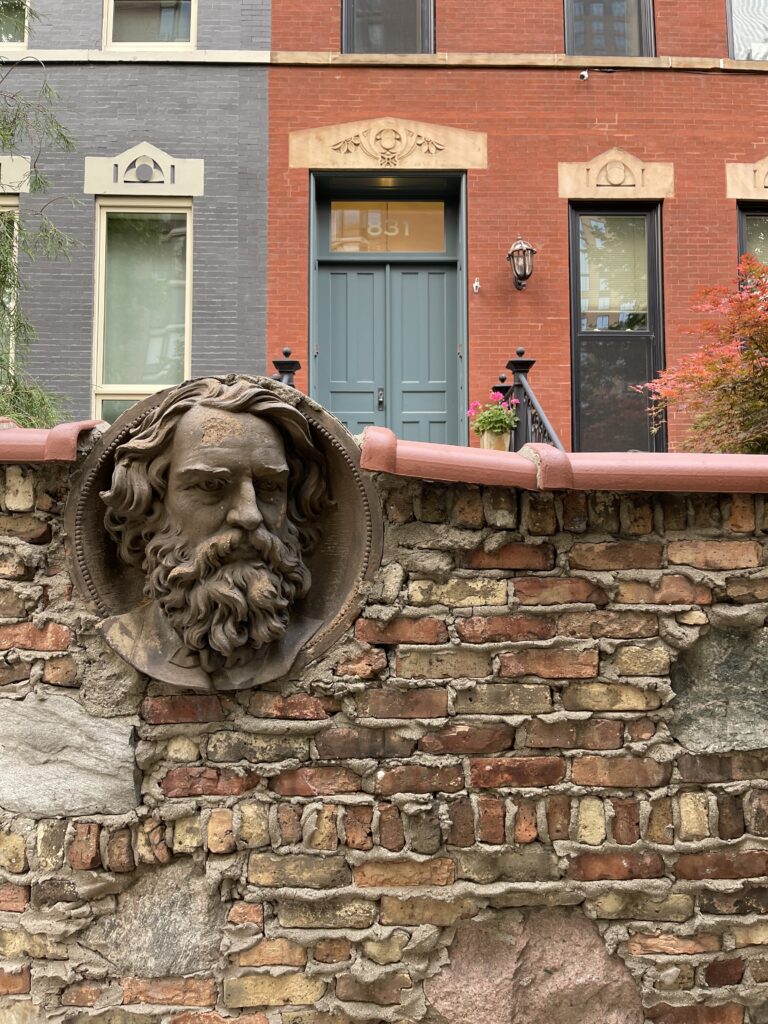
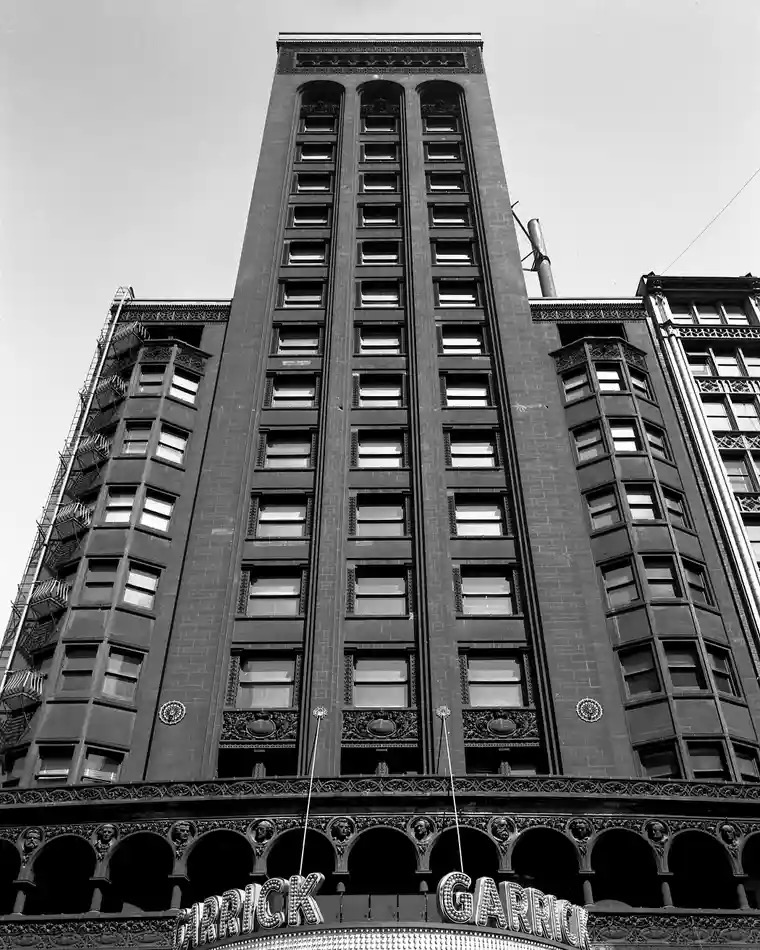
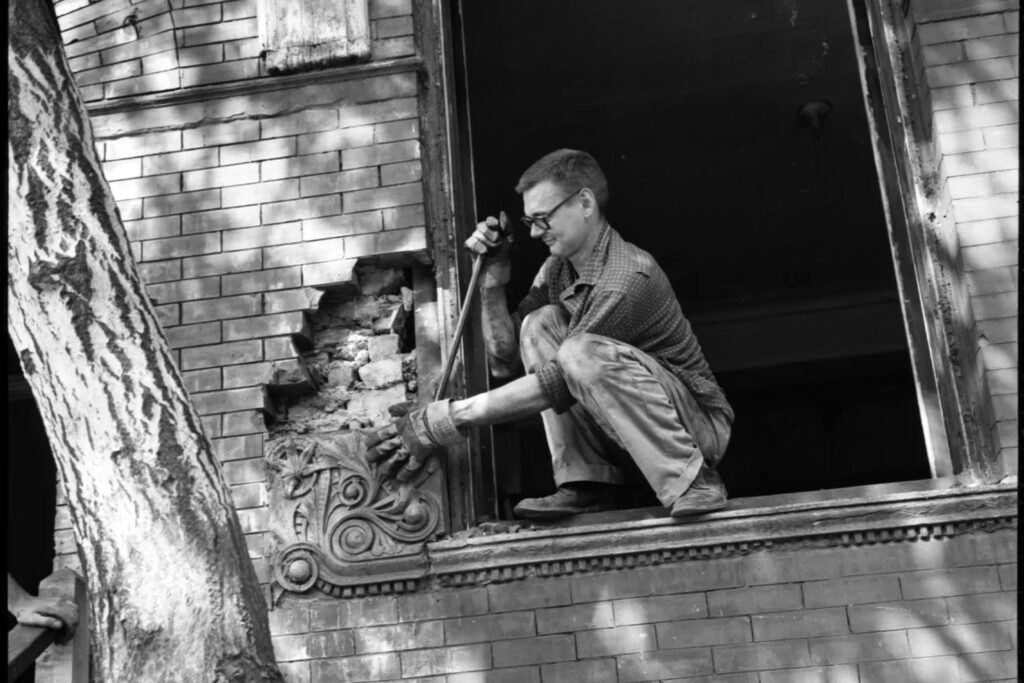
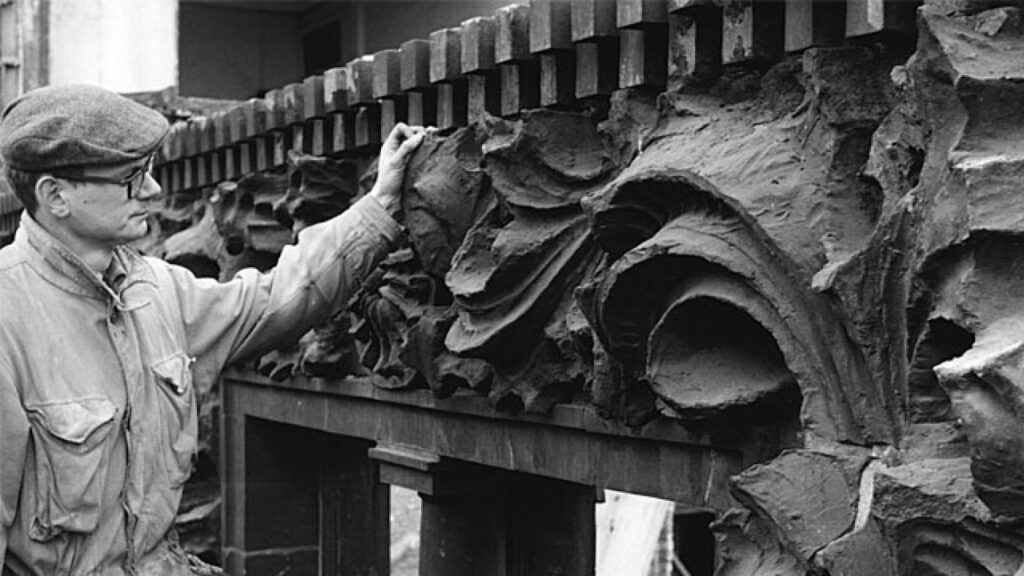
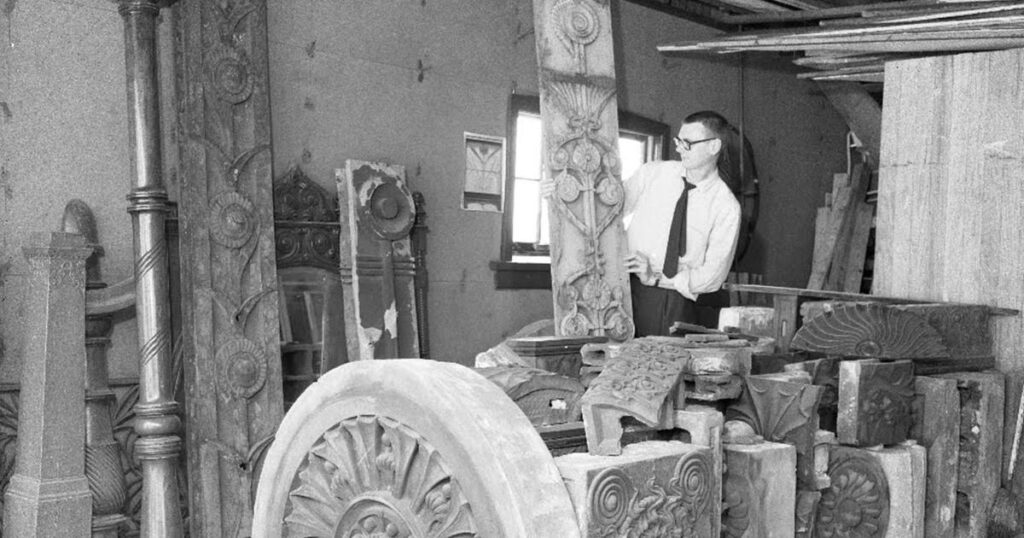
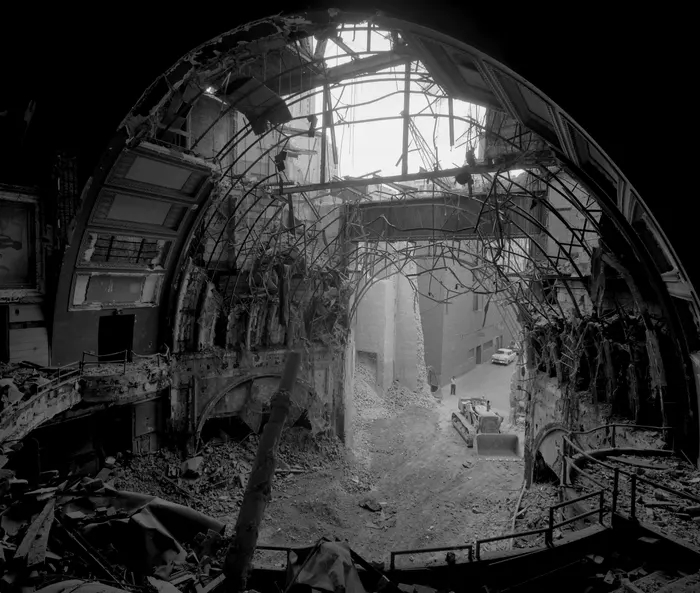
Cyrus McCormick – McCormick Place
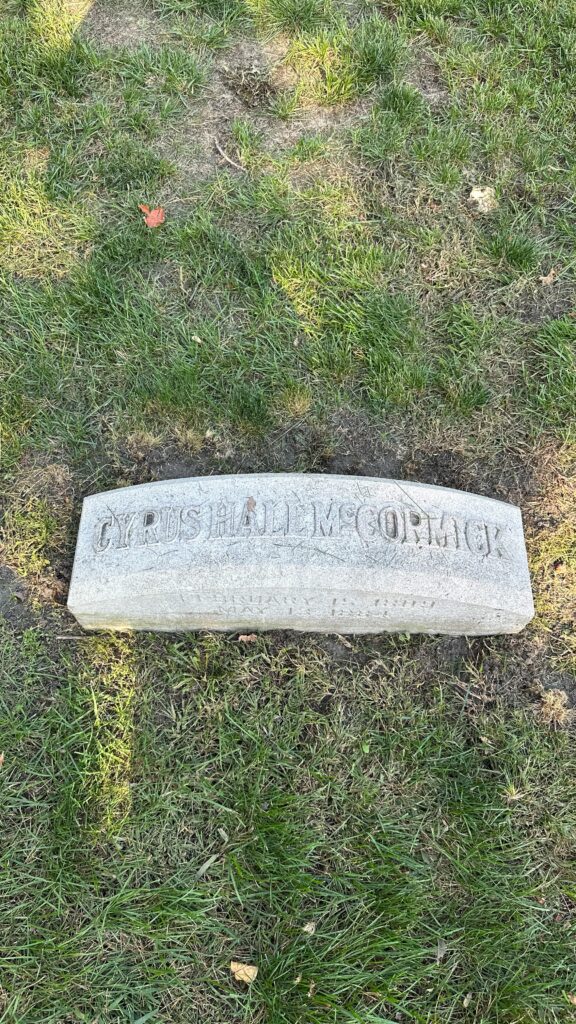
- Cyrus McCormick invented the first commercial grain reaper
- Called combines today
- Based his designs on earlier work by his father
- Founded McCormick Harvesting Machine Co. (later International Harvester)
- Pioneered modern marketing and distribution in agriculture
- His innovations revolutionized farming worldwide
- River North used to be called McCormickville
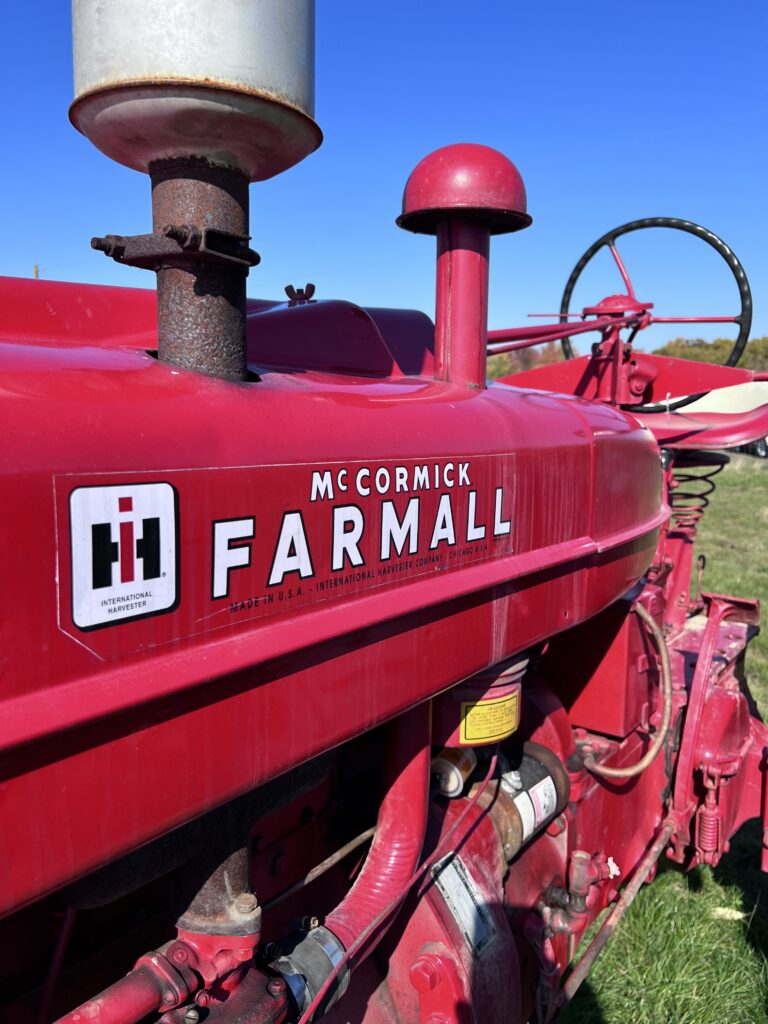
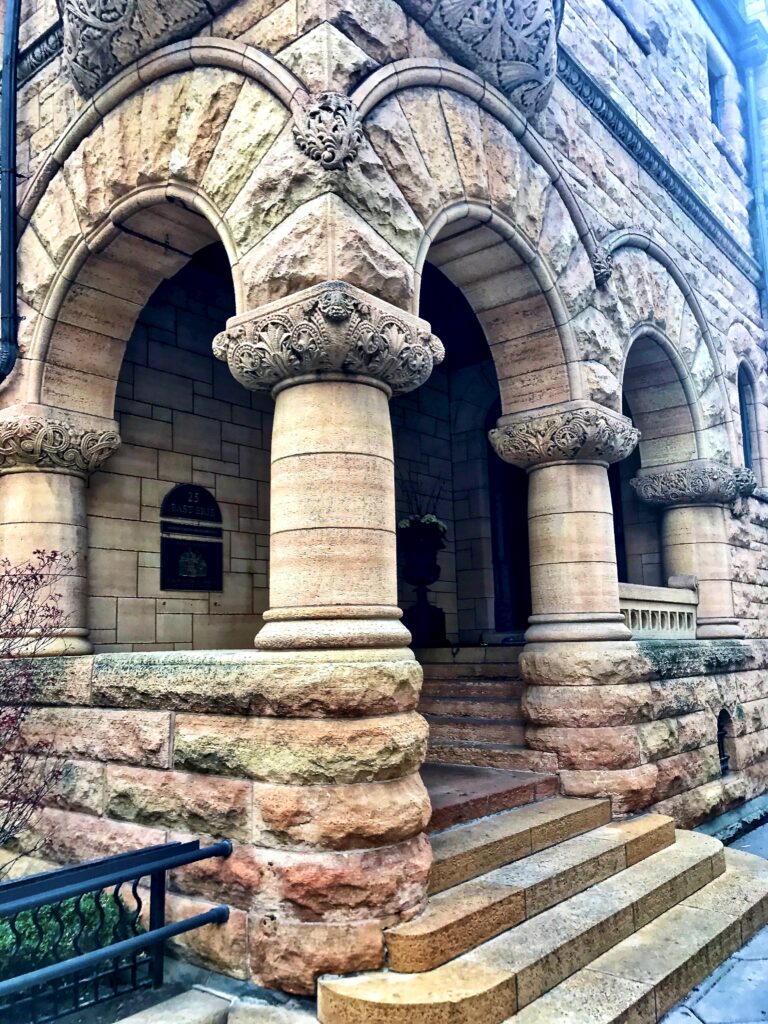
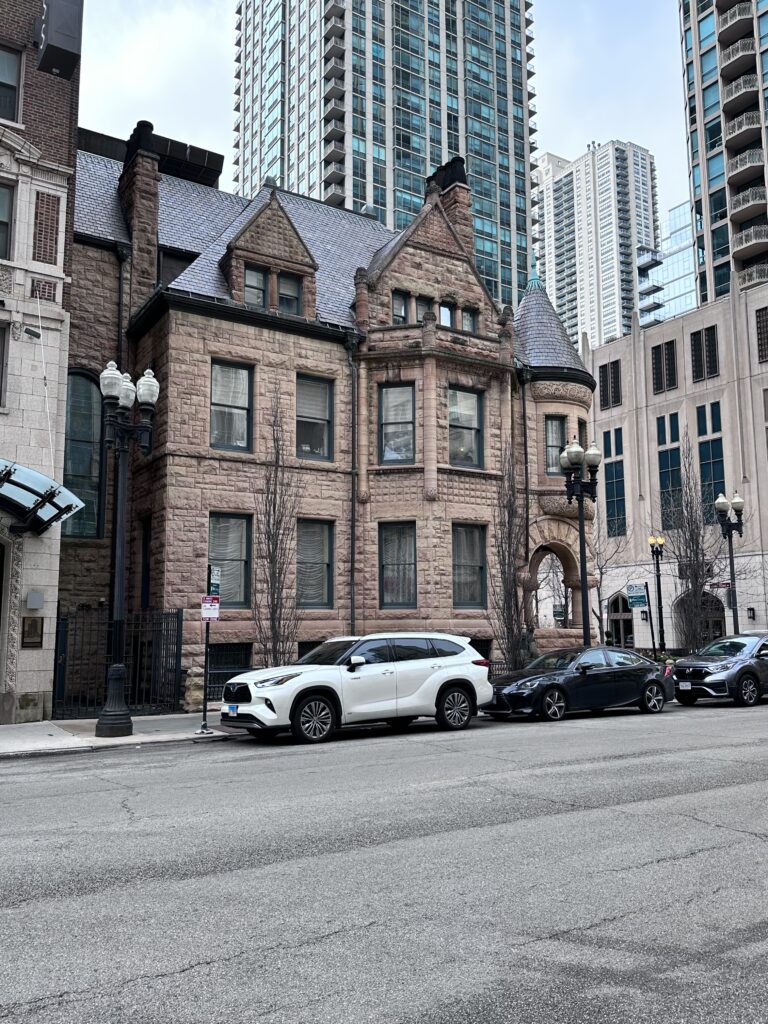
Marshall Field
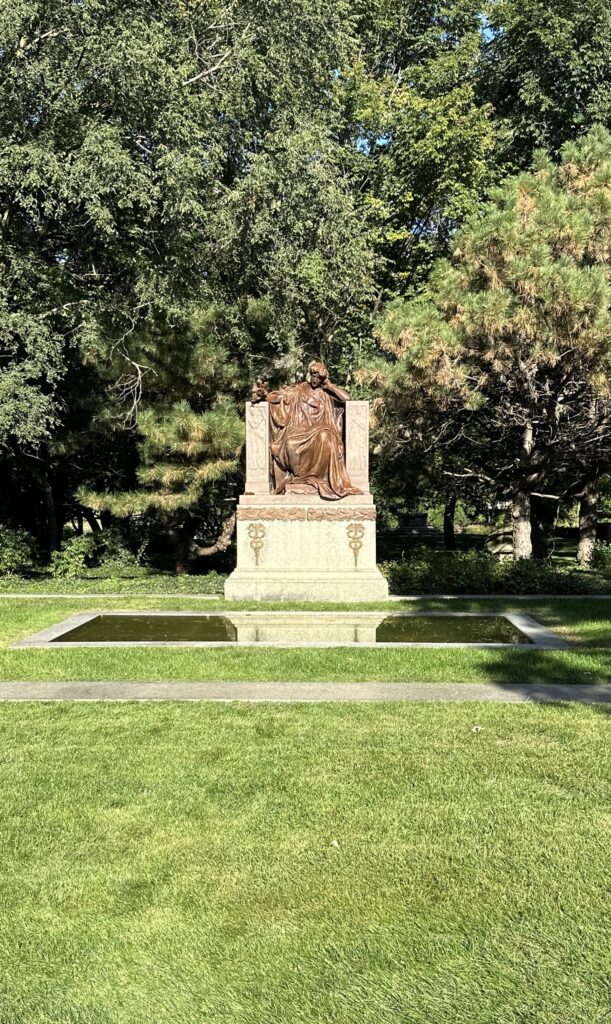
- Co-founded Field, Leiter & Co. in 1865
- Bought out Leiter in 1881 – $2.5M
- Creating Marshall Field & Co.
- Revolutionized retail
- Customer service, liberal credit, one price system and returns
- Introduced department store dining (The Walnut Room)
- Famous quips: “Give the lady what she wants”
- “The customer is always right”
- Grandson founded the Chicago Sun, later Sun-Times
- Meet me under the clock legend
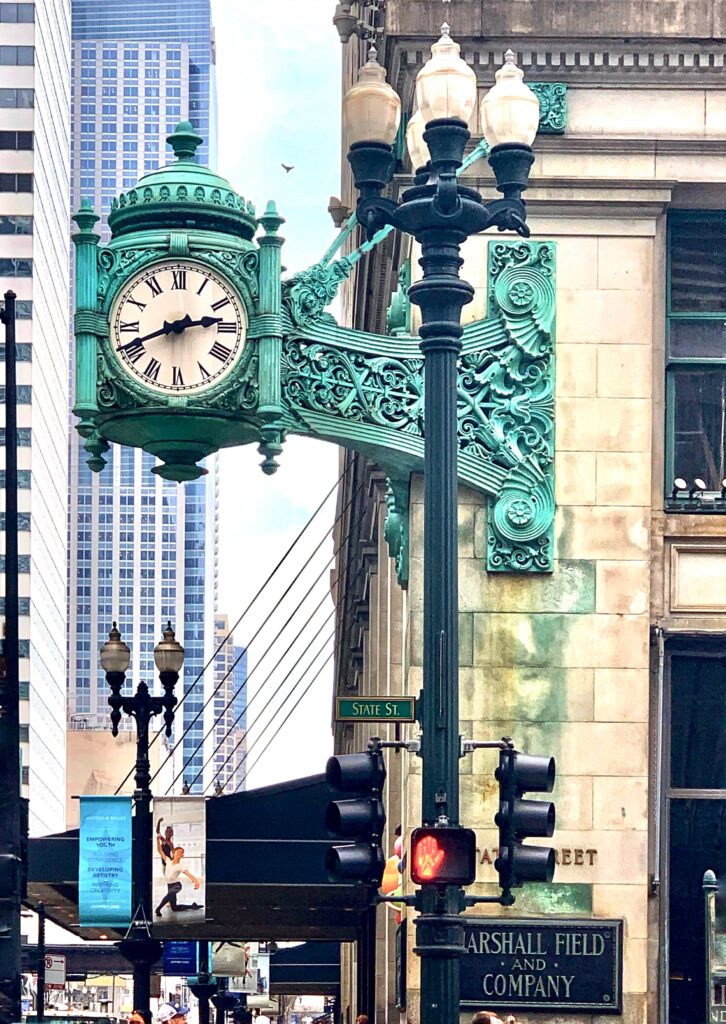
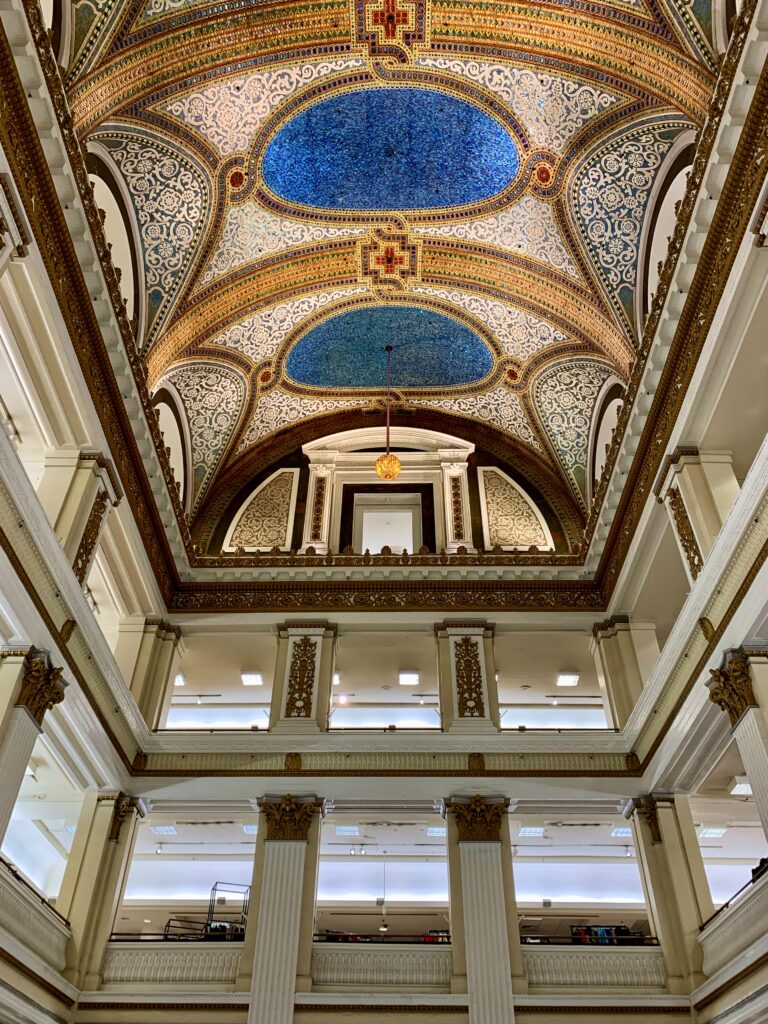

- Follow @doorwaysofchicago on Instagram
- Second Fridays Fine Arts Building
- Walking Tours and Private Tours
- Architectural Photography Prints & Greeting Card Collections
- Route 66 Content Coming Soon
- Doorways Of Chicago Coffee Table Book Launching in 2026 – Trope Publishing
- I’m taking my tours abroad and you’re invited! My curated group trip to Peru launches in 2026. Architecture, Ancestry & Ancient Doorways: Peru with Ronnie
- Social Media Creator Services
- Professional Interior Design Services